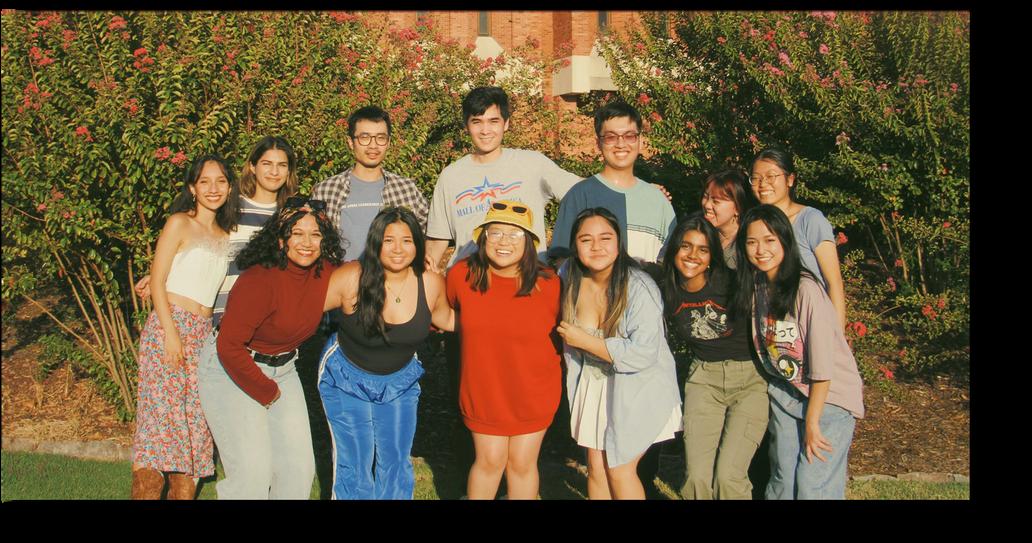

Letter from the Editor
The first step in the process of healing is acknowledging the pain.
Within this month’s publication, we hoped to explore trauma through the unique lens of the Asian American experience. In a culture where parental “I love you’s” are perceived as a once-in-a-lifetime occurrence, how do we make our first steps toward recovery in our unique Asian American trauma? While we are faced with external factors such as the perpetuation of the Model Minority myth and the Perpetual Foreigner stereotype, we must also acknowledge how we are affected by our own communities. But most importantly, how are we able to call out the injustices around us, in order to improve our community for the present day and for the future?
I would like to thank everyone who has helped to make this magazine possible. It’s been an arduous journey, but I’m so happy to see how far we’ve come in this past year. Both as a publication and as a community. I hope that you enjoy this month’s magazine, and I hope that you’re excited to see what we have planned for the future.
Sincerely,
Anthony Nguyen | Editor-in-ChiefPLEASE CONTACT ME AT OUAASA.GENSEC@GMAIL.COM WITH ANY COMMENTS, QUESTIONS, OR CONCERNS.
MeettheCo
Year & Major
Sophomore, Psychology
Favorite Quote
"Let your smile change the world"
- Conner Franta
Interesting Fact:
Adrianna used to be a competitive archer.
Oklahoma City, OK
she/her
AdriannaHoang HayaSaleemi

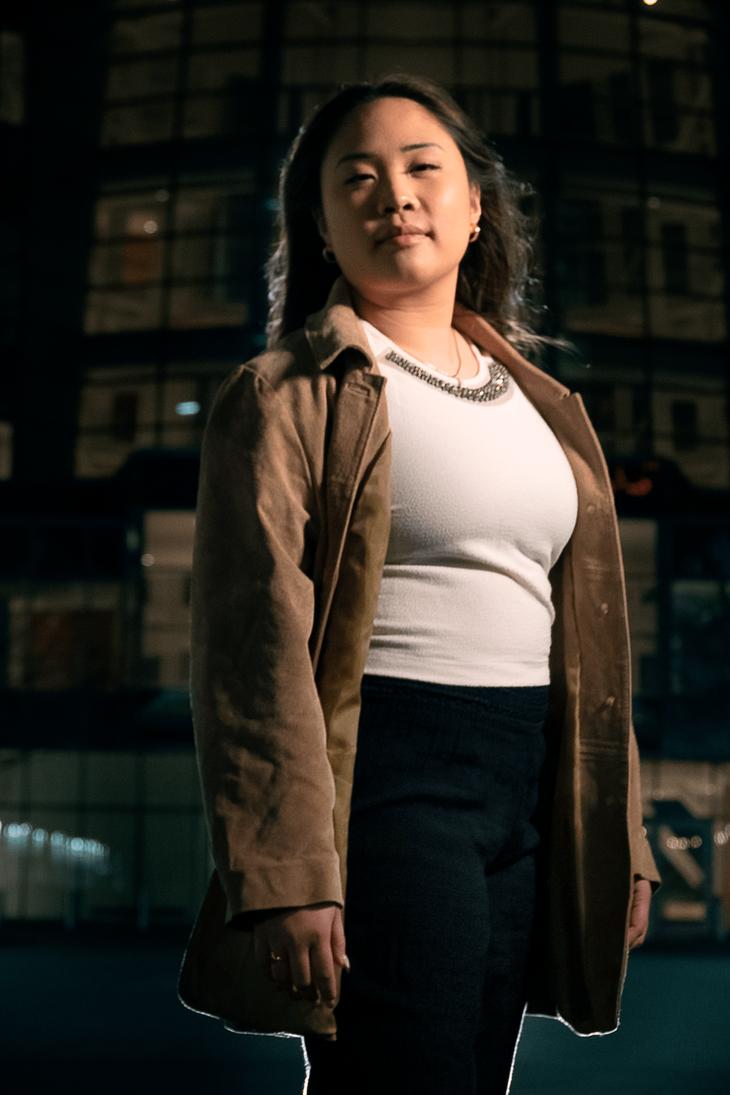 Edmond, OKshe/her
Edmond, OKshe/her
Year & Major:
Sophomore, Psychology/Pre-Dental
Favorite Quote:
"The way of water has no beginning and no end. Our hearts beat in the womb of the world. Water connects all things, life to death, darkness to light. The sea gives and the sea takes."
Interesting Fact:
"I'm really superstitious, I always guess things in detail before it happens, and it always happens the way I say it."
ontestants
Year & Major: Sophomore, Computer Engineering
Favorite Quote: "Kindness is a language everyone can understand"
MakenzieToma
Interesting Fact: Mak is a twin, and her favorite food is ice cream.
Year & Major: Sophomore, Social Work & Chemical Biosciences
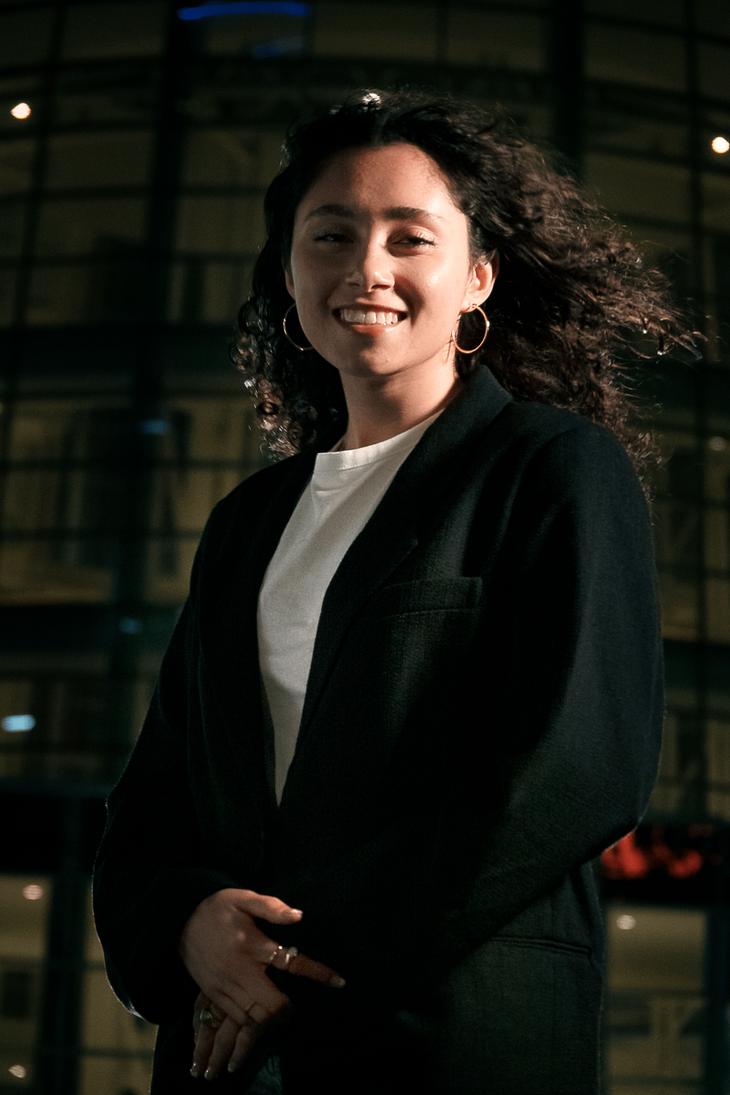
Favorite Quote: "The truth is a matter of circumstances. It's not all things to all people all the time."
- Natasha RomanoffInteresting Fact: Her longest ever dance was 30 minutes straight.

Year & Major: Senior, Health & Exercise Science
Favorite Quote:
"Everything happens for a reason."
Interesting Fact:
Vyctoria has a scar on the back of her head due to a fall she had when she was little by splitting her head open on concrete.
VyctoriaYen-VyHoang
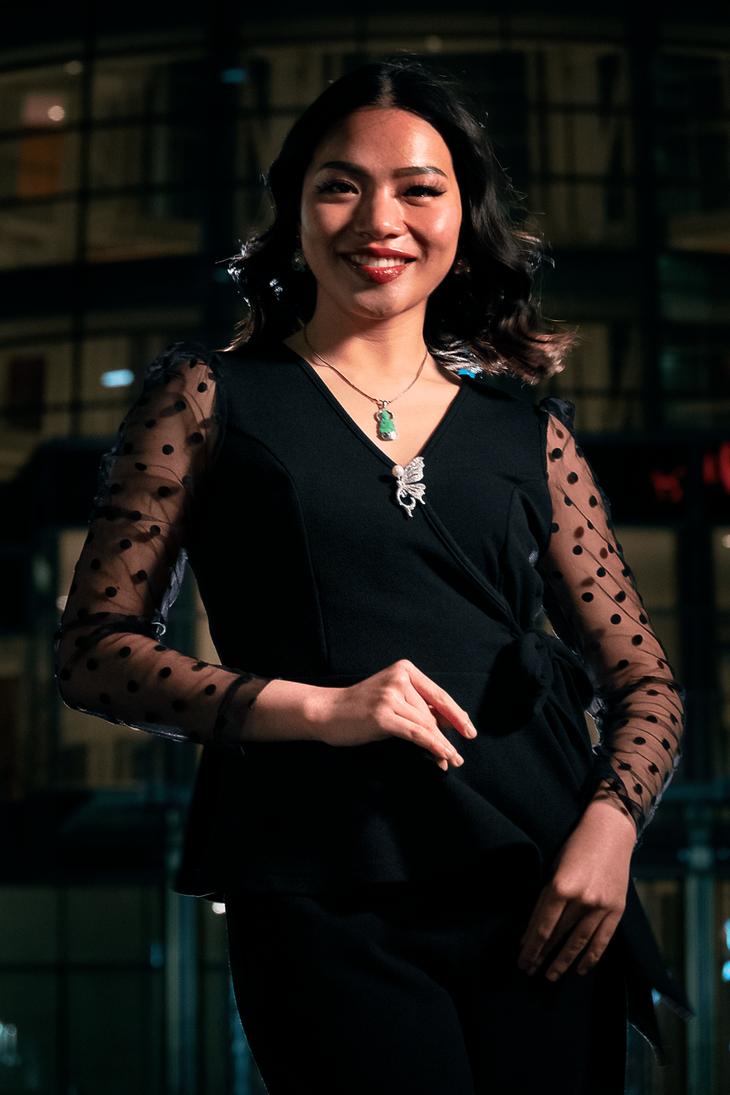
ontestants R
VivianHua
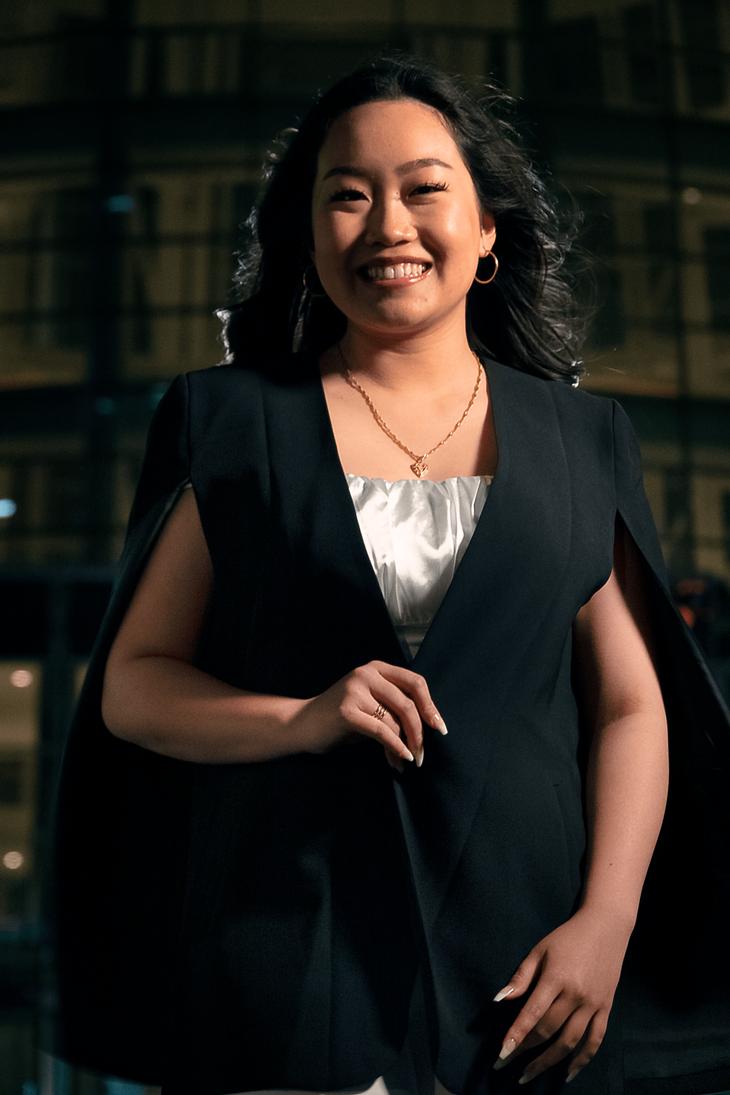
Year & Major: Junior, Health & Exercise Science/Pre-Med
Favorite Quote: "Eunoia [yoo-noy-uh] (n.) A pure and wellbalanced mind, a good spirit. Beautiful thinking.”
Interesting Fact: Vivian has a yorkie named Suki.
CONFERENCE ROOM B
friday, april 28th | 6:30 PM
JOIN US IN CELEBRATING OUR GRADUATING SENIORS
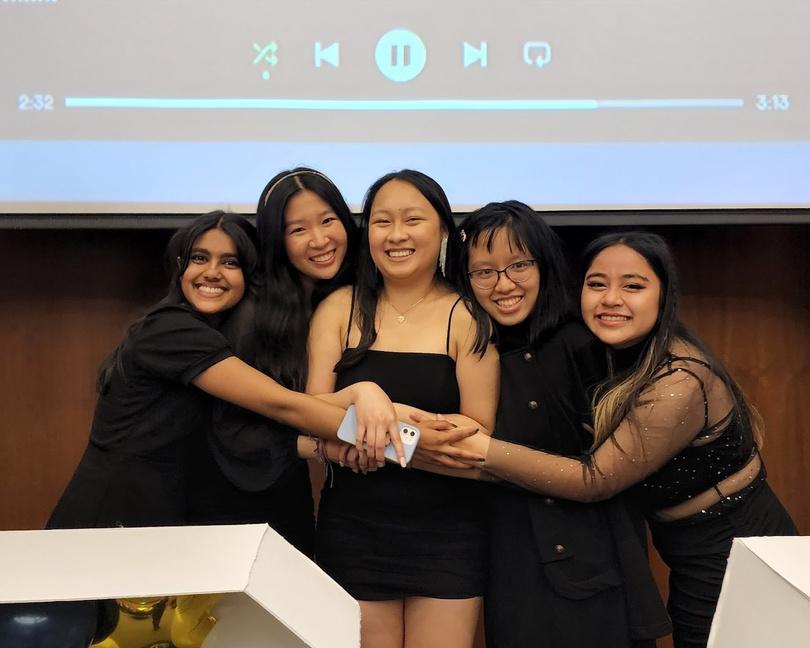
YOUR SENIORS
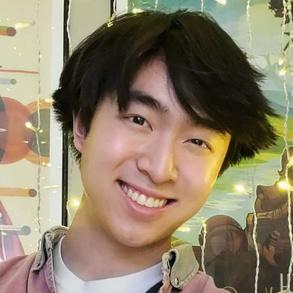
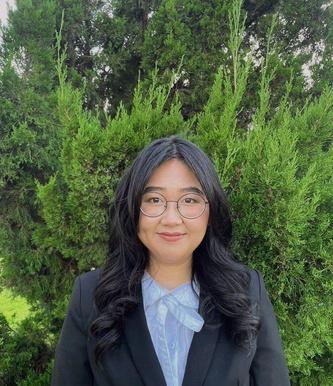
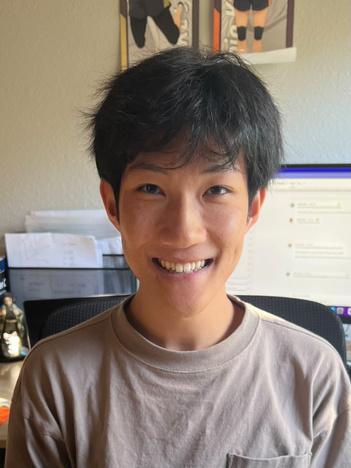
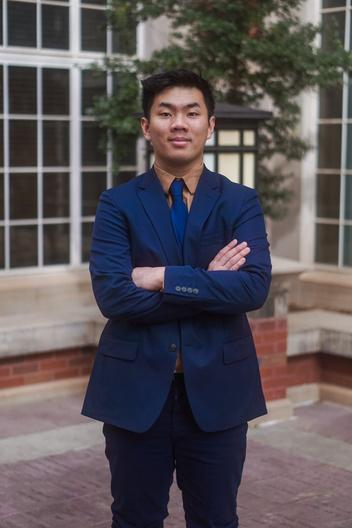
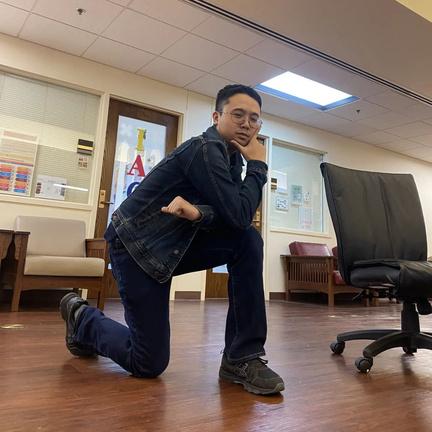
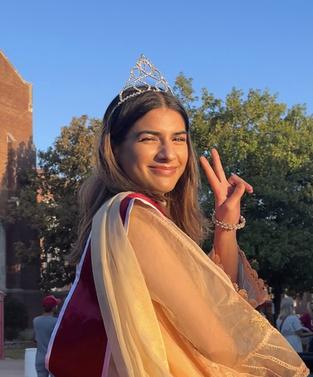
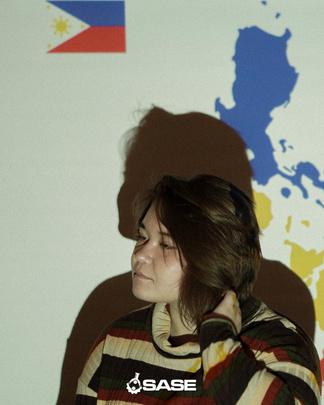
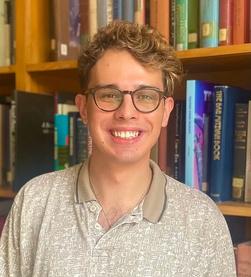
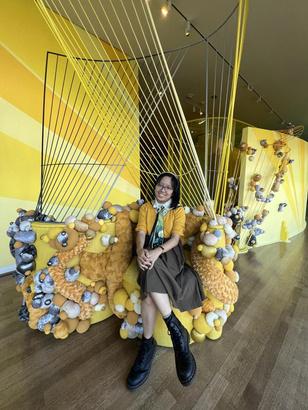
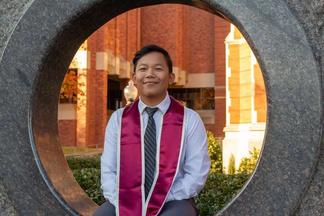
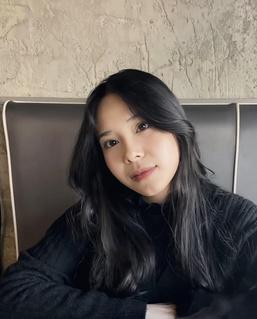
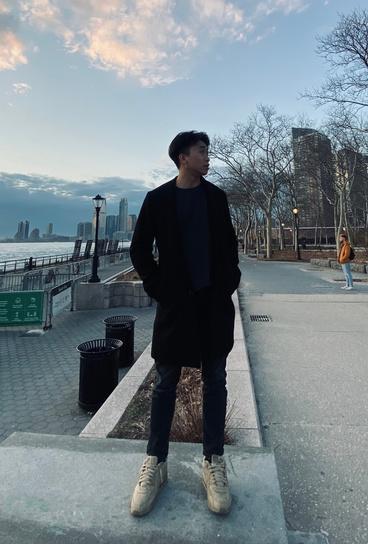
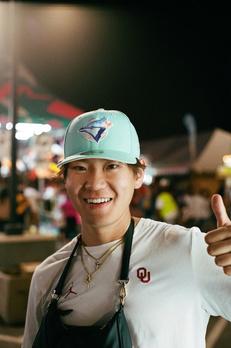

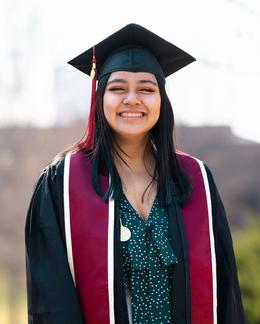
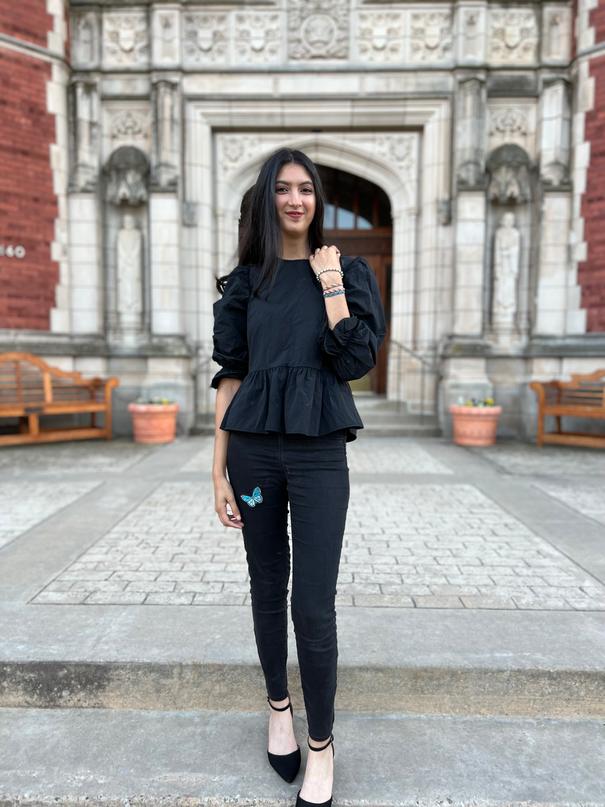
UPCOMING EVENTS
AsianAmericanStudentAssociation | OU Asian Royalty Pageant
April 2nd | 6:00 pm - 9:00 pm | Oklahoma Memorial Union, Meacham Auditorium
Come out and support our contestants in our annual OU Asian Royalty Pageant! Tickets are $5 pre-sale and $8 at the door!
AsianAmericanStudentAssociation| 6th General Body Meeting
April 5th | 7:00 pm - 9:00 pm | Jim Thorpe Multicultural Center
Come out for our last GBM of the year! The theme is centered around nostalgia and the connections we've made this year We'll be making friendship bracelets, and we'll have free food from Mo'Bettahs and Taste of India
MuslimStudentAssociation | Scissortail Iftar
April 8th | 6:30 pm - 8:30 pm | Scissortail Park, OKC
We are partnering with OUHSC MHPSA and UCO MSA for an Iftar at scissor tail We will also be putting together Eid goodie bags for children in the Oklahoma Afghan Community
TauKappaOmega xPhiDeltaAlpha| Philanthropy Night
April 10th | 4:30 pm - 6:30 pm | South Oval
Ready for a fun and fresh time? Taikos and Phi Dee will be hosting their very first joint philanthropy night! Come out for a night of games, food, and entertainment. Come see your favorite taikos get their head shaved, and raise some funds for philanthropy!
VietnameseStudentAssociation| All-You-Can-Eat Bánh Mì Night
April 11th | 6:30 pm - 8:30 pm | Jim Thorpe Multicultural Center
OU VSA will be hosting our annual All-You-Can-Eat Bánh Mì Night, with all proceeds being donated to the Mission of Hope Vietnam. Tickets are $7 pre-sale and $10 at the door.
KoreanStudentAssociation| K-Night
April 12th | 8:00 pm | Oklahoma Memorial Union, Meacham Auditorium
Look forward to performances where groups from the student body and Oklahoma area come together to showcase the current fine art trends of South Korea - specifically K-Pop - through dance, singing or instruments!
02
05
08
10
11
12
AsianAmericanStudentAssociationxOUEsports | 5th Annual Smash Bros Tournament
April 14th | 7:00 pm | Cross Village B, DIY Space
Come out and show your skills to us on who's the best smash player on campus! All proceeds will go towards Manos Juntas Free Clinic to continue providing free medical care to those in need in the OKC community! Registration is $7 pre-sale and $10 at the door.
AsianAmericanStudentAssociation | Asian American Healthcare Disparities
April 17th | 7:00 pm | Oklahoma Memorial Union, Scholars' Room
In collaboration with the Asian American Professional Student Association (AAPSA) of the OU Health Sciences Center, we will be hosting a panel about Asian American Healthcare Disparities
AsianAmericanStudentAssociation| Executive Team Elections
April 19th | 5:00 pm - 7:00 pm | Jim Thorpe Multicultural Center
Come listen to our candidates for the AASA 2023-2024 Executive Team [Cabinet] give their election speeches for the upcoming school year!
alphaKappaDeltaPhi
| invASIAN
April 20th | 7:00 pm | Oklahoma Memorial Union, Meacham Auditorium
Our goal is to showcase the various talents of the Asian American community here at OU, provide a platform for Asian American voices, and give back to the community We will be hosting performances, as well as an art gallery!
PakistaniStudentAssociation | Mock Mehndi
April 28th | 6:30 pm - 10:00 pm | Haystack Coffee
Are you coming to PSA’s biggest event of the year? We’ll be having traditional dances, desi food, and spreading our culture with a mock wedding event! Tickets are $10! PSA hopes to see you all there!
AsianAmericanStudentAssociation| Senior Night
April 28th | 6:30 pm - 9:00 pm | Thurman J. White Forum Building
Join us as we honor our 16 graduating seniors with dinner and gifts! It will be a time for us to celebrate before we say goodbye!
14
17
19
20
28
28
Ramadan
M U B A R A K
Informational Piece by the OU Muslim Student Association (Abidat Olaniyan, Safia Mesiya. and Yomna Helmy)
Let’s start with defining Ramadan. Ramadan is the ninth month of the Islamic lunar calendar and is regarded as the month of fasting as well as the month of the Quran, the holy book of Islam. Because the Islamic calendar is lunar, it is about 11 days shorter than the solar Gregorian calendar, meaning that Ramadan moves up the Gregorian calendar about 11 days every year. For the year 2023, Ramadan is expected to start on the night of Wednesday, March 22. Muslims believe that during this month, the Quran was revealed to the prophet Muhammad peace and blessings be upon him the final messenger and prophet in the Islamic tradition.
During Ramadan, fasting is obligatory on every Muslim who is of age and capable. Fasting includes staying away from food, drink, and intimacy with one’s spouse and refraining from foul language and behaviors that may tarnish one’s spiritual heart. Ramadan is a month of purification, and it is through fasting from worldly matters and turning to God’s word the Quran that a recalibration of one’s priorities takes place. A Muslim believes that the human’s purpose of creation is to worship God alone and to behave in ways that please Him. Ramadan is the month where that spiritual boot camp takes place.
Every Ramadan brings excitement and nostalgia. I remember the days when I was yearning for a cool glass of water or craving those chips I impulsively got at the Walmart checkout line. I remember the nights of long prayers and the sound of ping pong and soccer games. I remember the craziness of Muslim youth pulling up to IHOP at 3am on a Friday to prepare for the next day of fasting. I remember the community iftars (the meals we break fast with) where you’d see everyone you know and didn’t know eating dates, pakoras, and chicken biryani. Ramadan brought the sense of community, the sense of purpose I’ve always craved to find as a minoritized individual in this society.
The day begins by waking up for suhoor (predawn meal) around 3-4 am before fajr (dawn prayer). As soon as the Athan (call to prayer) strikes, all forms of eating and drinking stops and the fasting begins. The fajr prayer is observed, Dhikr (reminding oneself of Allah) is done and the Quran (holy book) is read. Our day starts.
Later in the day, Dhur (afternoon prayer) is observed, the Quran is read, some dhikr is done. {Continues regular schedule}. Asr (late afternoon prayer) is observed, more Quran is read, more dhikr is done. {Continues regular schedule}. A little after sunset, it’s time to break the fast and have iftar (meal to break the fast). This meal varies in household and cultures. Typically Muslims break their fast with dates and water or fruits. After breaking the fast the Magrib (after sunset prayer) is observed mostly at the masjid (place of prayer) after prayer, “the big meal” is eaten. One would think after fasting for about 18 hours we would be starving and ready to eat the whole earth, but that’s usually not the case. Most would just eat the dates and fruits used to break the fast as we end up not being as hungry as our brain and mind had made us believe we are.
The last obligatory prayer of the day Isha (night time prayer) is observed, also usually at the masjid, more Quran is read and more dhikr is done. After this prayer, we observe another prayer called the Taraweeh prayer. This prayer isn’t obligatory but recommended. It is a prayer that involves reading long portions of the Quran as well as performing the regular rakahs (cycle of movements in prayers). We finish reciting the Quran in the span of the 30 days during this prayer. The day ends with this prayer. Of course some people could continue with various acts of worship at night as the Holy month of Ramadan is the most scared month and the month of worship.
AtypicaldayinRamadanforMuslimsmayvarybasedonfactorslike cultureandoccupations.
It means a lot to us if you wish us a ‘Ramadan Mubarak’ or ‘Have a blessed Ramadan’.
We may be a little more tired than usual due to changes in our sleep schedules and lack of energy. Although we don’t expect special treatment, it would be kind to check our preferences for meeting times.
Refrain from asking a Muslim whether or not they are fasting unless they offer up the information themselves! Muslims can be exempt from fasting for various reasons, and these can sometimes be personal.
TermstoKnow
Suhoor/Sehri
The predawn meal before the fast begins.
Iftar
The meal eaten after the sunsets to break the fast. The fast is usually broken with dates and water.
Taraweeh
Non-obligatory but highly recommended night prayer in congregation in which the Quran is recited.
Quran
The holy book of Islam, believed by Muslims to have been revealed to our Prophet Muhammad (peace be upon him).
EidAl-Fitr
The celebratory holiday at the end of Ramadan.
Ramadan/EidMubarak
The celebratory way of wishing someone a blessed Ramadan/Eid.
College is a curse in disguise.
Once I came here, I felt free from the expectations of my parents and I was able to truly live on my own as a young adult. It came, however, with the downside of having to leave my Muslim friends behind in my hometown. As a Muslim myself, having Muslim friends is amazing since we are all able to hold each other accountable. Whenever I had a question, I would go to them rather than my parents since they were never really that religious. Sure, they encouraged me to practice Islam, but once I learned how to read Arabic, I was on my own.
I never truly connected to my religion until high school, and my Muslim friends greatly impacted that. They were the reason I felt motivated to complete the Quran 4 times and complete all five of my daily prayers. I loved going to the mosque just to be with them. It was nice to pray by their side, have iftar in Ramadan with them, stay up to read the Tarawih prayers, and have suhoor with them. Although I still enjoy doing these things on my own, we’re now all hundreds of miles away from each other.
When I started college, I began to feel disconnected from my Muslim friends and my religion. It’s this feeling that gradually eats away at you, that nobody talks about when they go off to college. Losing the connection that , you had to your religion. I kept on falling in and out of praying my daily prayers. I’ve grown so busy that I end up missing the first three prayers of the day and feel like I’m falling behind. Once it hits Maghrib prayer (the fourth prayer of the day), I have three prayers to make up for and I start to lose all my motivation. I come home so tired and so hungry, and nothing encourages me to get up or complete those prayers or make dinner. I no longer have a friend to do these prayers with or my hometown Muslim friends to hold me accountable.
When I confided my best friend about how I felt disconnected, she told me that it would be okay since Allah (SWT) is all- forgiving. I felt comfortable in the moment, but I wasn’t able to grab back onto that passion I felt back in high school.
A big part of this feeling comes from how I’m not as present in the Muslim community back at home like I used to be. My parents decided to withdraw from the South Asian Muslim community since my parents could not handle the hypocrisy and the constant judgement that they would hear there. I don’t care what anyone else thinks of me, but when it comes to this South Asian Muslim community, I get worried — scared even. One wrong move, intentional or not,
they are ready to ruin your reputation and wish ill on you. Nowadays, I get scared to enter a mosque or even the reflection room in the Bizzell because I’m terrified of being judged. Even when I was little at my local mosque, random aunties would come up to me and my friends and I and aggressively point out how we were wearing the wrong things and that our mothers weren’t teaching us right.
All this has piled onto this feeling of disconnection. In high school, I was able to slightly ignore it since I had my Muslim friends by my side and Muslim figures to look up to. But now, it’s so hard because my Muslim friends are not right there with me and we have grown too far apart – both emotionally and physically – to hold each other accountable. I’ve still been pushing through this feeling. I end up praying in my car most days or just waiting to go home to complete my prayers, and I read verses of the Quran on my phone. It’s so hard to not be judged in this community where you have “haram police” in every corner talking behind your back, commenting on the clothes you wear or the things you do and how that makes you less Muslim.
I would like to add that this is my unique experience. Please don’t make a misconception of Islam from what I am saying. This is exclusively just how my Muslim community functioned. Islam itself is such a beautiful religion and that’s why it hurts me so much to write this, explaining how I feel so disconnected from Islam and a proper Muslim community. I want my fellow Muslim peers to know, that no matter what you do, you are not any less Muslim than you were before. You are the only one who knows what connection you feel to your religion, whether you choose to believe in one or not, no one should be telling you that what you are doing is wrong or right except for yourself. This Ramadan, I hope to soon feel connected again.
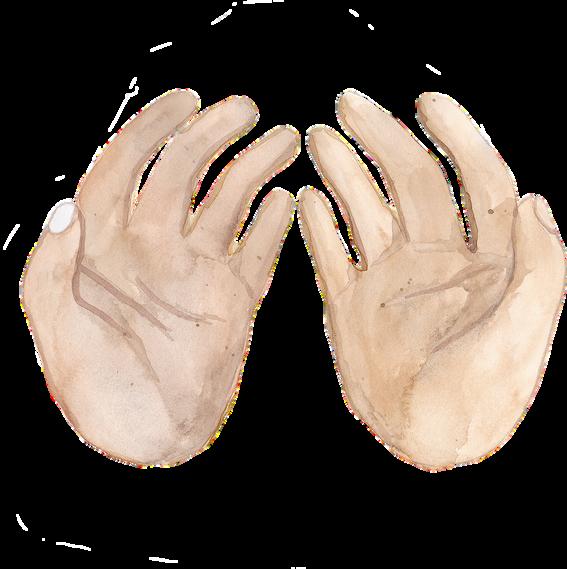
exit wounds
by Anthony NguyenIn a little green Vietnamese restaurant in the Asian District, I sat across from my mother, with two bowls of pho separating us. As I grabbed bean sprouts and mint leaves from our shared toppings plate (due to her well-intentioned persistence to eat my vegetables), we’d talk about school, life, or whatever else was on our minds.
Ever since I moved away from home for my junior year of high school, the distance had caused us to treasure the brief remnants of time that we had with one another, even if it was only for a meal. But during one of her visits, I was telling her another story of how I’d managed to fall asleep on my desk while doing homework for the umpteenth time or something equally as mundane. I expected her to get onto me as she usually did, but she grew silent
societal food chain That education was the means to secure a better life for myself than the lives they had, after sacrificing everything they'd ever known to come to America
For the longest time, I despised them for this. I just wanted to play video games in my free time, instead of doing math worksheets on more math worksheets. To live a “typical American childhood” portrayed by TV shows and movies These days, I’ve grown to no longer resent them for how they raised me. After years of arguments and the numerous bowls of cut fruit given in lieu of actual apologies, I realize that despite the flaws that came with them simply being human, they only wanted the best for me.
I wanted to be angry. To lash out, to let her know that one apology would not make up for those lost years of my childhood But I couldn’t. I knew that it wasn’t her who had been the greatest source of this overwhelming pressure, nor was it my father. It was me
Like a lot of kids with Asian immigrant parents, I was raised with a focus on education. After all, my parents believed that education was the only way to rise up in the
Although time heals some wounds, I was still left with the scars of their suffocating expectations. My parents wanted me to succeed, and who am I to say yes to another exciting encounter of being disciplined for not being good enough? I worked hard in school to get good grades, pushed and “encouraged” by everyone around me: my parents, my friends, my teachers, among many others.
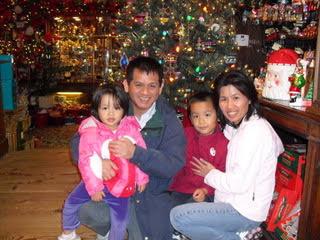
“I’msorryforputtingsomuchpressureonyou.”
My parents eventually loosened up as I grew older, but the damage had already been done I was known as the “smart kid” growing up, and this slowly ate away at me. I intertwined my self-worth with my academic capability, praying that it would be enough of a roadblock between “the path to success” and the terrifying abyss of failure. I saw this as a love for learning, but in reality, I think that I was just scared of what would happen if I didn’t meet expectations – those of my own and of the people around me.
When I was thirteen, I moved an hour and a half away to attend a boarding school for Oklahoma’s “best and brightest.” Some students half-jokingly gave the school its beloved nickname of “Nerd Prison,” but I called it the place where it all went to shit.
I struggled to stay afloat. My defense mechanisms of “just study harder” weren’t enough to keep up with my own expectations. And as I struggled to keep myself awake on countless nights in the dim hours of the AMs to work on my calculus and physics problem sets, I crumbled in the face of my desired perfectionism.
There had never been any academic problem that I couldn’t solve with “just study harder.” And now, an “unstoppable” force had met an even-more-immovable object. To a kid who was barely allowed to call himself a teenager (and barely had the emotional capacity or maturity of one), it felt like I was drifting away, shattered without purpose. All my life, I had thought that as long as I worked hard enough, I could do anything that I had set my mind to. My parents had always told me stories about
how they worked hard – in spite of a language barrier and in the face of poverty – to find success in America. But no matter how hard I tried, this was not going to be another success story, not another manifestation of their tales of the “American Dream”, where I could overcome all odds to achieve my goals.
And that was okay.
As I stood with my diploma in-hand at my graduation, I wondered if it was all worth it. The sleepless nights, as I tried to cram for my 8 AM Saturday exams. The midnight ramen cups, in result of accidentally studying through the cafeteria’s dinner time. The struggles of clawing my way to prove to myself that I was good enough. Even if I picked up more things in the field of science and mathematics than I would have anywhere else, I would have been happy to only have learned that to fail does not make you a failure.
Now I’m eighteen, nearing the end of my junior year. Some days, I wonder if I had wasted my “younger” years on homework problems and bubble tests Even my friends ask me about the “what if’s.” About if I had a choice, would I choose to do it all over again? In the past, I wouldn’t have hesitated to say yes, but nowadays, I’m not so sure anymore. As cliché as it may sound, I only live once, and I don’t want to spend the rest of that time being entrenched in a pushand-pull between nostalgia and regret But for now, the least that I could do is to live for myself.
i'm no asian fantasy
by Kaella GlennI was in tenth grade when I'd first heard the word hentai.
“So, you said you’re Japanese?”
“Yeah! From my mom’s side. I’m trying to learn more about the language but it’s a little hard being in Oklahoma.”
“Do you watch anime?”
“No, not that much.”
itself inevitably intertwined amongst them all. And because I am so incredibly proud of my culture, I share my heritage and language with those near and far because there is pride in the way I carry myself. But... it’s not hard to think that maybe people only like me because I meet their imaginations as a Japanese American.
Pause.Thenachuckle.
"Well,howabouthentai?"
I looked up the word out of my own curiosity. Listening to the pronunciation, I knew it had something to do with Japan but I was mortified after I looked at the images that were on my screen. Not only was I embarrassed at the fact that I was looking at [animated] porn, but I was also ashamed that at first interaction, this is what this guy immediately associated with me. I’ve been through millions of ambiguous interactions like these before, and all at a very early age, but it was here that I formed something new inside of me.
Uncertainty.
Recently, I’ve felt uncertain about the types of relationships I’ve made in college Whether it be friendly or romantic, my identity as a Japanese American has found
When people view you through perspectives that are shaped by racial fetishization, your ability to form true and honest connections is hindered by the distrust you grow in your heart. Your identity is no longer your own but is overshadowed by thoughts like,
DoIremindhimofsomegirl fromananime?
Does he like my personality or is this just what he imagined in his head?
What if they only like me becauseofmyethnicity?
In my last relationship, a common question I asked my ex when we were dating was, “Do you like me because I’m Japanese? Or did it just happen to be that way?” Before we had met, I carried a lot of insecurities regarding my own desirability because of ambiguous comments from people in my class.
Of course, my ex mentioned that there were plenty of other things he liked about me. But I couldn’t shake away those feelings Those comments, those words... they were set in stone and there was no way I could properly go about any relationship of mine with such demeaning ideas on how people perceived me.
I’ve been told before that I would be a perfect candidate on OnlyFans because “dudes are into Asians and Lolicon I fit into that market ”
Very rarely do we talk about the embodiment of fetishization and ask ourselves how we are playing a part in the perpetuation of these narratives. In a cycle that slowly chips away at the identity of Asian American bodies, how are we contributing to the harm and objectification done by Anti-Asian hate. What can we do to repair this?
“To my fellow Asian girls, women, and beyond- you are more than this sexualized picture fueled by white supremacy. You’re not a “spicy oriental, waifu, anime dream girl”, or whatever other nonsense that people make up. You are not a stereotype nor someone’s fetish. You are so much more.”
- Jenna LigutomBUT
I AM
NOBODY’S YELLOW FANTASY
AND THERE IS MORE TO ME THAN JUST MY IDENTITY AS AN ASIAN AMERICAN.
There isn’t a day that goes by when I don’t have these kinds of doubts And often, I tend to look towards people for validation despite the professional front I put around others. Racially driven fetishization is overwhelming to deal with and I am tired of the way that it has caused me to feel so vulnerable.
Ligutom, Jenna “Asian Fetishization ” Project Lotus, Project Lotus, 9 Oct. 2021, https://www.theprojectlotus.org/blog/asianfetishization.
The Lucky Ones
by Kaly PhanAs defined by the American Psychological Association, “inter-generational trauma is a phenomenon in which the descendants of a person who has experienced a terrifying event show adverse emotional and behavioral reactions that are similar to [or are results of] those of the person [themself]. These reactions vary by generation, but often include… low self-esteem, depression, difficulty with relationships and attachment to others, difficulty in regulating aggression, and extreme reactivity to stress,” among other responses. This definition has previously focused on descendants of Holocaust survivors
and of Japanese-American incarceration camp prisoners, but has since expanded to include Native American nations as well as the families of Vietnam War veterans.
As I’ve analyzed these things like low selfesteem and high anxiety — and others hyper-focused in the Asian-American community, such as severe academic competitiveness as a stem from a need to succeed, thrive, and survive, and that subsequent pressure — in my own life, I’ve noticed a pattern. However, I didn’t have any evidence to back this, just feelings. This conversation I had with my mom, talking about her childhood and how she felt after the fall of Saigon, put many things in my own life into perspective.
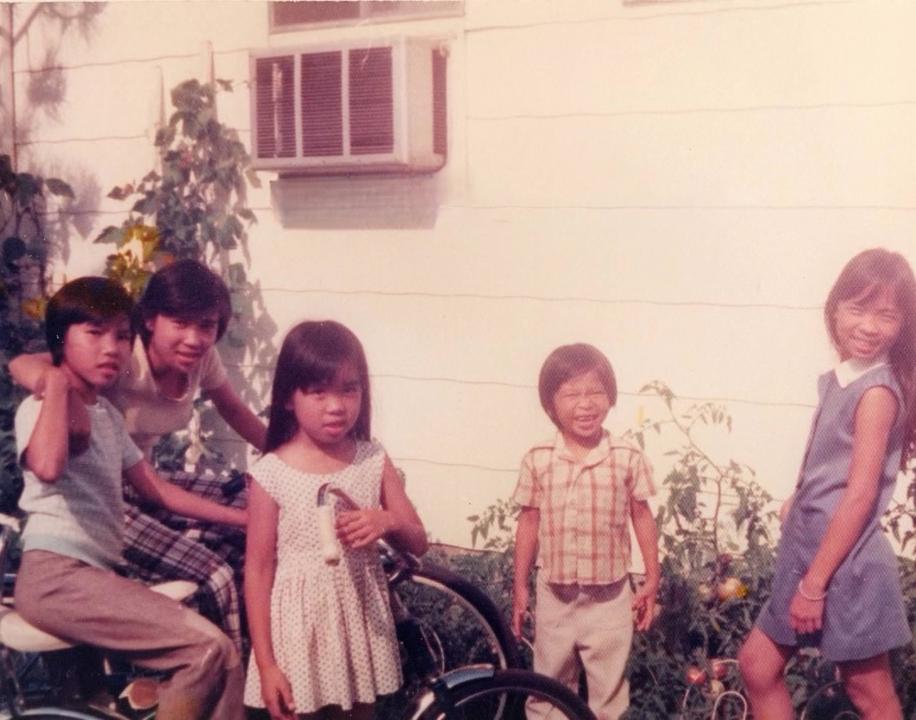
So, I guess to start off with, just tell me about the fall of Saigon.
Okay. I don’t have a real in-depth memory, just snatches of it because this is over 40 years ago I know that my family waited until the very last day before we could go. People had been leaving in droves, but we didn’t. That was because Grandpa was a colonel, and he felt he had to stay with his men. Other generals, colonels, and captains left, but he was one of the few officers who actually stayed until the very end until [South Vietnam] said, “We surrender.” Grandma also felt she could not leave without Grandpa, so we just waited until he came home and he said “Okay, we gotta go ” She grabbed a lot of things like papers and pictures, but she didn’t grab any money, which was a pretty common thing I think it’s why a lot of refugees don’t have financial backing even if they came from an upper-class lifestyle like we did because, you know, Grandpa was a colonel — a high-ranking officer
Anyways, we left on the last boat that was going out, which was a cargo ship. It was so crowded, and we tried to stay together. I remember this part: we were standing at the rail, and, as the ship was leaving, I could literally see the fall of Saigon when the Viet Cong came. People were jumping down into the ocean, and they tried to swim, and any boat that could leave, they took off, like fishing boats and little canoes. Even then, there were still a lot of people on land.
the bottom level because there’s no air circulation or you got sunburned on the top. Take your choice. We traveled so far, we ran out of gas I don’t know where exactly, but we were drifting for a few days until an American ship came by and towed us to Guam.
And tell me about Guam.
There’s a refugee camp there and there’s hundreds of tents — I’m sure you’ve seen it in pictures and stuff — and we were able to get one. I don’t actually have too many memories of Guam. I do remember we had food because the army was there, and it was like a buffet-style line where a soldier would stand behind the food and scoop up whatever they were serving that day.
The cargo ship, because it wasn’t built for passengers, only had a top level and a bottom level. You either were suffocating on
Because we were in an American territory, we had to register to go into America. I was too young so I didn’t need to, but I know Grandma, Grandpa and Uncle Hai had to file the paperwork To register, we got on another boat from Guam to California. It was Camp Pendleton, in California, I remember that so clearly There, you register to be sponsored. To be honest, it’s not a lottery. They do pick certain families over others. Family units got sponsored faster than single people, especially if they had a religion We lied and said we were Christian so we’d get picked first. We were sponsored by the First Baptists of Christ, I believe. Because we were sponsored by the church, everyone chipped in money to help us rent a house, look for jobs, and teach us English. The whole thing actually from Saigon to getting sponsored took us about three months, which I know was super fast. 23
That was in Tulsa, right?
That was in Bartlesville, actually. We moved to Tulsa a year later and, from Tulsa, we moved to Houston.
Speaking of Bartlesville, you’ve told me this before, but could you tell me about you having to stay with some random family for a year?
What happened was when we were sponsored by the church and they were trying to integrate us into the American lifestyle, one of our biggest blocks was communication We didn’t understand them The church got together and said for whatever family volunteers to do this each family will take one child and have them live with that family so we could learn the “American way” and English faster.
So, me and three of my sisters were all sent to different homes and then my two youngest siblings went to live in another home together.
Who did you stay with?
The Veits. They had four kids, I think. One of them was named Karen, she was around my age, and she had a younger brother.
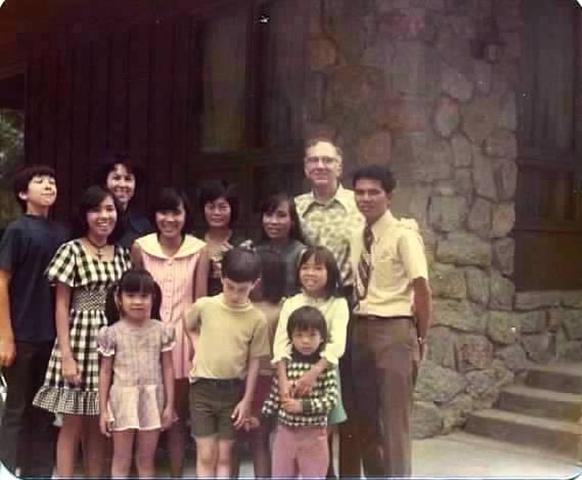
Because they had kids that I could talk to, I think that’s the reason why I stayed the longest. It was either a year or more than a year, but I don’t think anybody else stayed more than five, six months. Every time I’d see my actual family, because I saw them on Sunday because that’s when we would go to church, I realized everybody got to go home but me. I asked to go home and they finally said, “She’s homesick,” and let me go
I actually can’t imagine being sent to live with another family, that’s so strange. Okay, so, you were nine when you came over, right? Since you were so young, did you ever remember — just, throughout the entire process — being scared?
I don’t think I was actually scared for my life because I was too young to understand I know that around me, there were people crying because they had been separated from their family. We were lucky enough that we were able to stay together the whole time The other thing is you need to be sponsored. If you did not get sponsored, the U.S. might have deported you back to Vietnam. But, like I said, I was too young to understand My older siblings and my parents were there so it was never on my shoulders to take care of anything. Because of all that, to be honest, I don’t think I have trauma.
Would you consider yourself lucky?
Oh, yeah I never got separated from my family for long and I didn’t have to carry anything, which I know isn’t the case for a lot of people
Well, obviously, this piece is for the AASA magazine themed around trauma, and intergenerational trauma is pretty prominent in communities that have been forcibly removed from their homes. The way, typically, intergenerational trauma works is that because of the very abrupt displacement of people, for those who are older, they turn to very harmful practices like alcoholism, drug use, physical abuse, that sort of thing, and that kind of keeps spiraling to the point where the children do it to their children and their children’s children, and it just keeps moving on from there.
Well, if that’s what it is, yeah, I don’t think I have it I can’t speak for my brothers and sisters though.
Well, that’s… That’s crazy, just given your circumstances since, you know, war and forced migration are the key ingredients for trauma. I guess it’s because your experience was a lot less distressing than, say, dad’s because dad went through a lot growing up.
Even though you personally had an easier time assimilating to like what it is to be, quote, unquote, American, do you think there's still a dissonance between how you practice Americanism and how me [and my siblings] practice Americanism?
Even though I grew up here, I am still very much Asian cultural-wise. That’s the difference between me and you, because I am still very deep in Vietnamese culture and you are totally American. I tried to do it, but it’s just too tiring.
I had you guys late, and I watched my sisters with their kids and tried to get the best parenting out of that. I decided, when I was having you, that I would raise you as Americans. But, me, I am 100% Vietnamese. I feel that, because I am an Asian living in America instead of being an American, that is a disadvantage I was trying to give you guys as much advantage as I possibly can.
Another common sign of intergenerational trauma you might have even though you say you have none is a dysfunctional parentchild relationship, like a child becoming incredibly distanced from their parent. Do you think you’ve seen that, either with your siblings or with yourself, or is this another aspect of your life [trauma] didn’t affect?
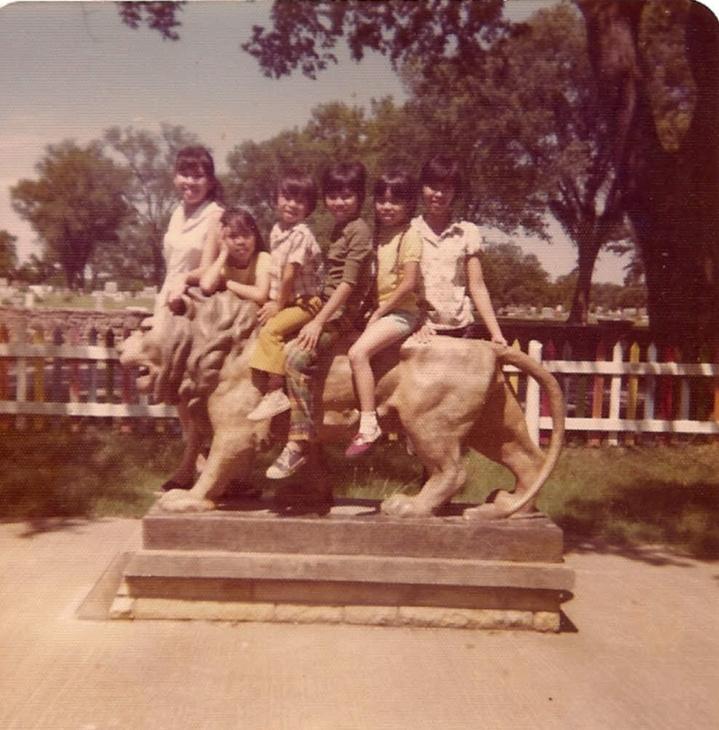
Since we are in America, we don’t have to live with each other. Even if we have an argument, we can leave We have the advantage of leaving an area when there’s a dispute or toxic environment. For example, me and my brother don’t get along If I were living overseas, in Vietnam, I would have to be at home and that would make it worse because I would constantly be around him and we’d get into an argument Now, I haven’t talked to him for over a year, but it’s very hard to have an argument if you don't talk to each other.
Let me give you an example: I know a family who all lives in the same general area as each other They have more chances to see each other and there’s more disagreement. Then, because the siblings the parents are fighting, their children are fighting and that affects the cousins’ relationship with each other.
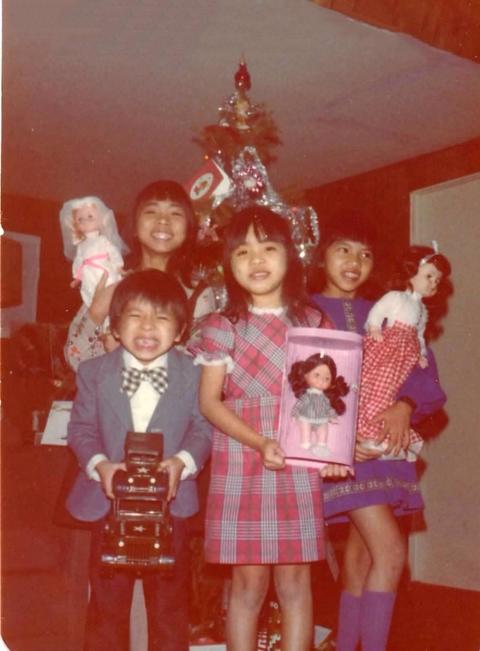
For Asian Americans specifically, a common thing for us to experience as part of a sudden displacement is a separation or suppression of culture, like how you were told to change my name.
That’s… I don’t think that’s a suppression, I think that is something to make your life easier. You’re not going through everybody trying to mispronounce your name. That’s why we switched your Vietnamese name to your middle name, and your American name to your first name. Your last name already clearly shows you’re Asian, so what does it matter what your first name is? You were always going to go by your American name anyway, so this makes things easier.
Like, when I do paperwork, I have to put down my legal name even though I go by my English name, so it gets confusing for other people. But not you. There’s no cultural risk, I think.
I mean, yeah. I don’t know, I just sometimes wonder what would’ve happened if you kept it. Also, the fact I don’t speak Vietnamese is a big thing, too, but I know you did that on purpose as well.
My last really big question is: Is there anything I didn’t ask you about trauma, particularly how it pertains to you or your family that you want to talk about?
I don’t know. I… I just feel really lucky. I don’t really have any trauma because, like I said, yes, it is an adjustment coming from Vietnam to living here, but I was so young. Kids are very resilient, so I was able to acclimate to the U S fast However, I will say I was bullied when I was in school since I was an Asian girl in Oklahoma, which is almost 100% white, but, luckily for me, I stood up for myself.
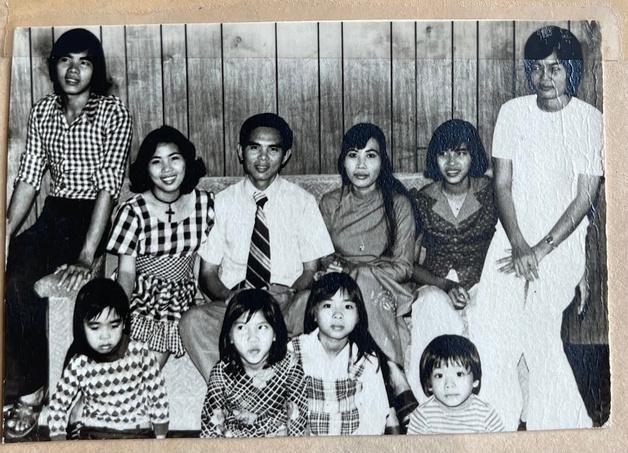
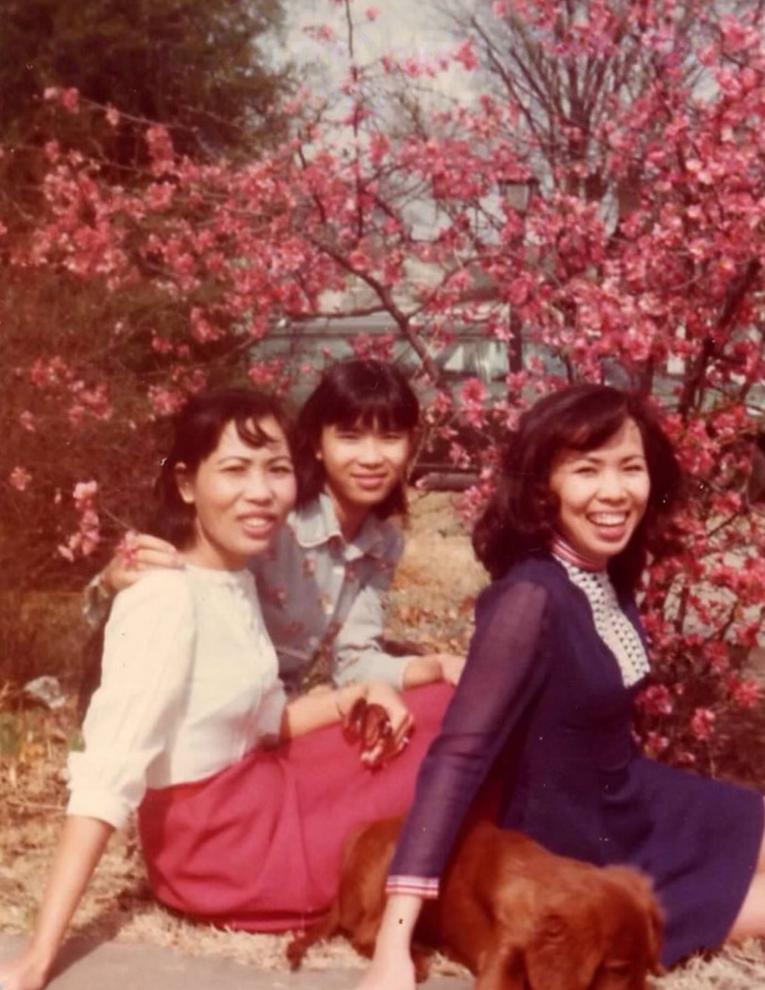
Like, when I was in grade school, I don’t know who started it, but somebody started the rumor that I knew kung fu, which I didn’t, and there were these two boys and a girl who liked to pick fights with people. So, the girl asked me if I knew kung fu, and I said, with the little English I had, ‘You want to fight me and find out?’ and she backed off. That doesn’t seem very cool, but grade school bullying, you know, always comes down to fights She did turn around and beat the shit out of the other little boy, but she never touched me.
There was also some bullying in middle school, but high school I told you about high school. On the bus to school, there was this girl who would always pick on me and one of my sisters. One day, I had my coat on this’ll be important and the girl was wadding up paper and throwing it at us Nobody said anything. Finally, I looked at [my sister] and said, ‘You know what? I’m not gonna take this.’ I took my jacket off as if I was going to start something and, when she saw I took my jacket off, she stopped. But, once she saw I didn’t do anything, she started up again. Next thing we knew, I stood up and slapped her and basically intimidated her to stop. I don’t remember exactly what I said because my English was pretty bad, but I do remember the bus driver said, ‘I didn’t see anything at all,’ which I thought was funny. After that, when I saw her in the hallway, she would come up and apologize to me.
I do remember you telling me that and it’s still so bizarre and funny to hear. Well, if you don’t have anything else to say, that’s all the questions I have. Thank you, mom.
Of course.
Crying in Cao Nguyen
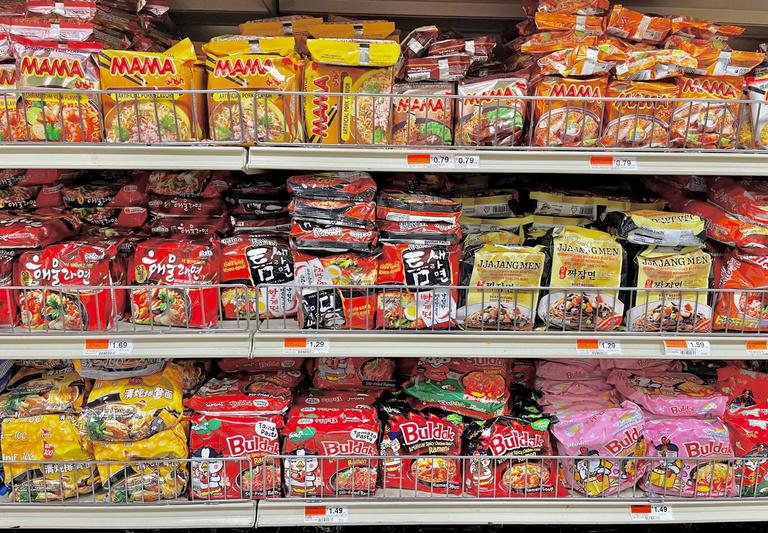
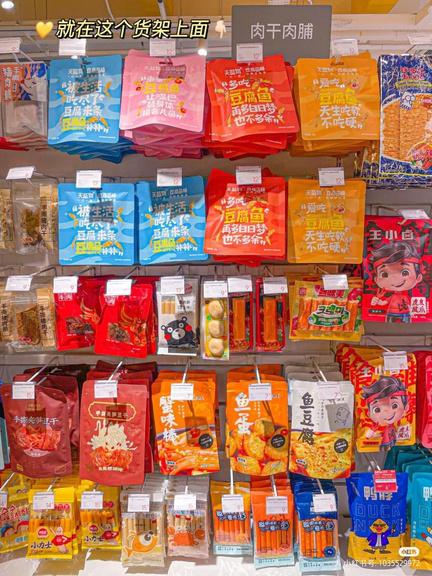
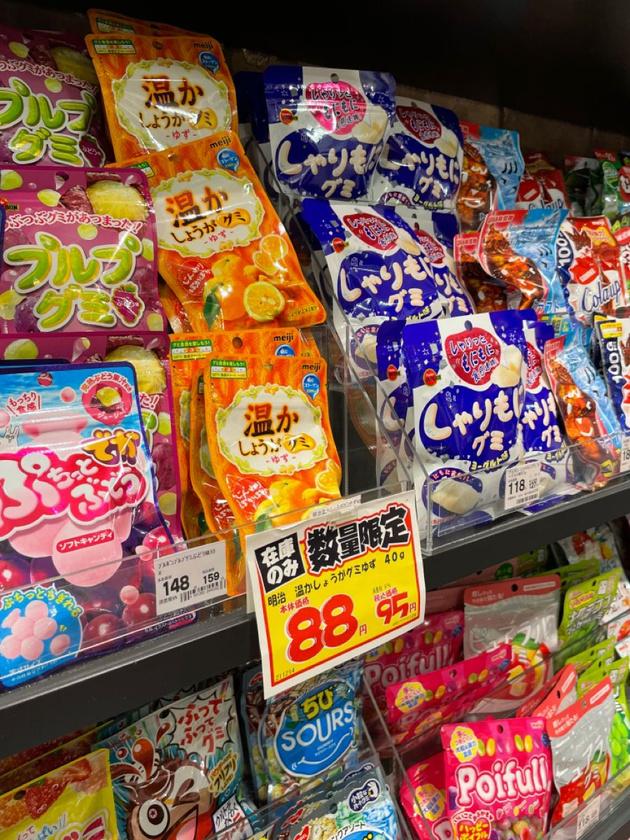

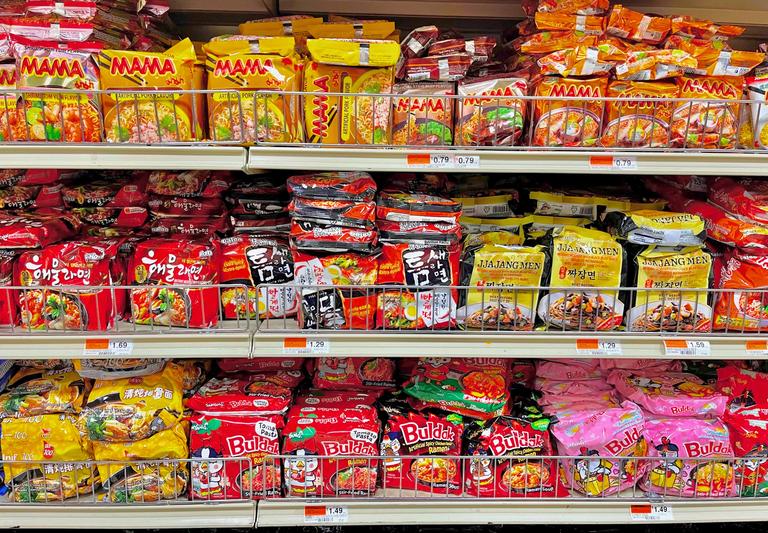
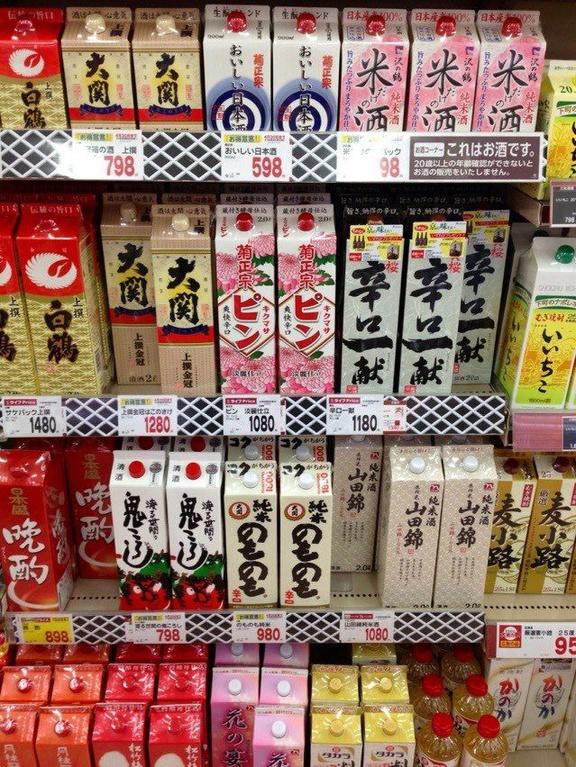

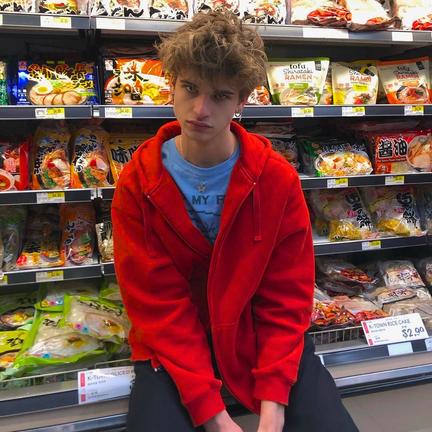
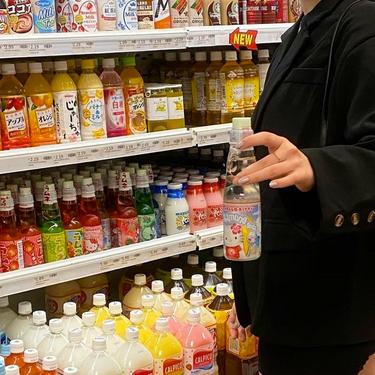
 by Caitlin Le
by Caitlin Le
Beyond the fake palm trees and faded green pillars, my local Asian grocery contains multitudes Aisles lined with noodle boxes, stacked high enough to reach the warehouse ceiling. Cutesy animal-shaped jugs, filled with nostalgic jelly snacks. Live crabs and crawfish, just waiting to pluck at my older brother’s reckless hand.
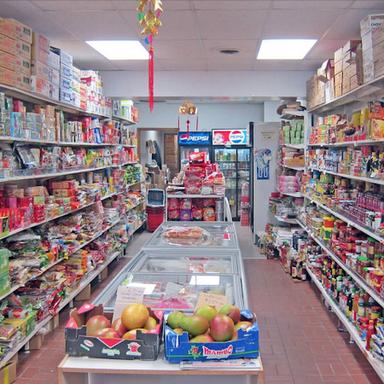
And more recently, swarms of new customers turning my shopping trip into a photoshoot.
To my 10-year-old self, a post-church trip to the market served as asylum from a Eurocentric world – cafeteria conversations may have snickered at the smell of my lunchbox, but I could always find solace in the corridors of Cao Nguyen. By the time my mother finished stocking up for the week’s recipes, I’d have already picked out my drink and snack of choice: spicy shrimp chips and Yeo’s soy milk.

The milk is often hard to reach now, barricaded by visitors posing with the Yakult and Ramune. They make sure to keep the seafood stall down the aisle out of frame, though – that’s a little too Asian. They’ll pass by and share whispers of its vulgarity later, noting the fishy smell and “exotic” sights as they make their way to the register
Through no fault of our own, it appears that our culture has been commodified. Asianness – the kind just “kawaii” enough to be digested by white consumers – now seems less like a complex identity and more like a marketable aesthetic. Those who sneered at our dishes and decor have now decided when and where being Asian is right. They applaud their k-pop biases and rave about Asian beauty products in the same breath that they use to call us dirty.
But we, like the shelves of our stores, are more than a commodity. We are secret recipes passed down through generations, or memories of family trips back home. We are ingredients measured with feeling, never tablespoons. Our communities cannot simply be reduced to an aesthetic for Western consumption – we are so much more than that.

Double-Fried Karaage
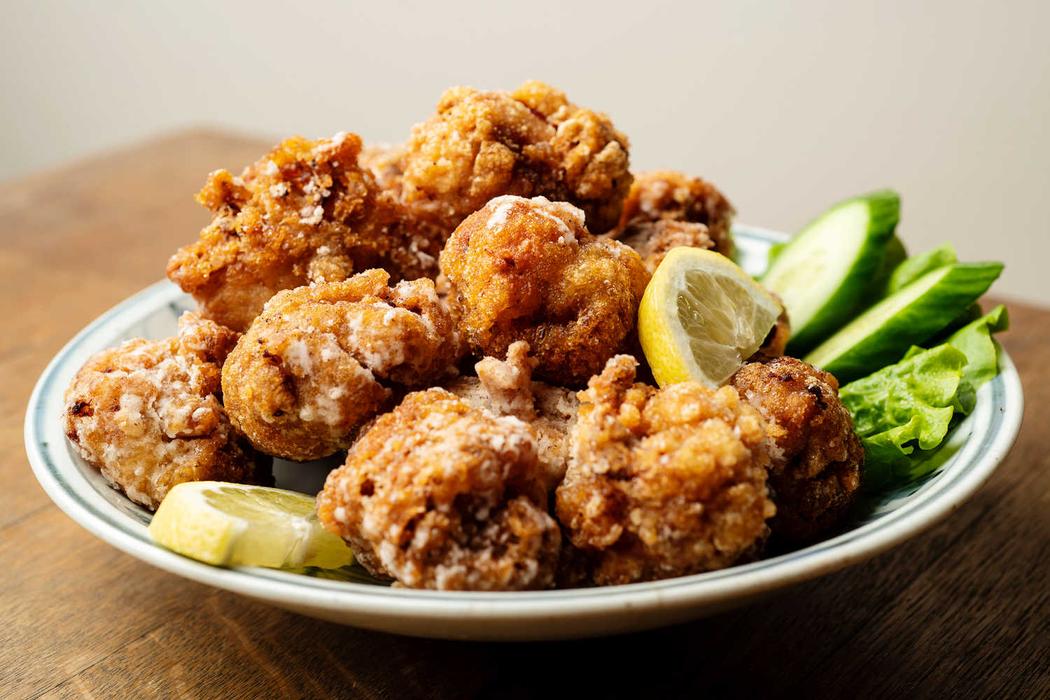
SERVINGS: 3 PREP TIME: 15 MIN COOK TIME: 20 MIN
Ingredients
5 skin-on chicken thighs, 2-inch cubes
1/4 cup soy sauce
4 cloves garlic, smashed
1 tbsp sugar
1/2 tsp salt
1/2 tsp pepper
3/4 cup corn or potato starch
3/4 cup all-purpose flour
canola or vegetable oil, for frying
Directions
Mix soy sauce, garlic, sugar, salt, pepper in a bowl. Mix in the chicken pieces, then refrigerate for 30 minutes to 1 hour.
Add oil to a wide pot and turn on medium heat. Combine starch and flour in a bowl, and coat each piece in the mixture.
Fry the chicken pieces in batches (5-10 pieces) for ~2 minutes, until the chicken is light golden brown Let rest on a wire rack or a plate lined with a paper towel. Turn the heat slightly higher (medium-mediumhigh). Fry the pieces in batches again for ~1 minute, until the chicken is golden brown.
Serve with lemon wedges and kewpie mayonnaise!
1. 2. 3. 4. 5 6. 7.Gochujang Braised Potatoes
SERVINGS: 2 PREP TIME: 15 MIN COOK TIME: 30 MIN
Ingredients
4 cups yellow potatoes, cut into 1-inch chunks
1/2 yellow onion, diced into large chunks
5 cloves garlic, diced loosely
3 tbsp soy sauce
2 tbsp gochujang
1 tbsp oyster sauce

1 tbsp honey
2 green onions, sliced
sesame seeds (optional)
Directions
Let potatoes sit in water for 15-20 minutes. In the meantime, combine soy sauce, gochujang, oyster sauce, and honey in a small bowl.
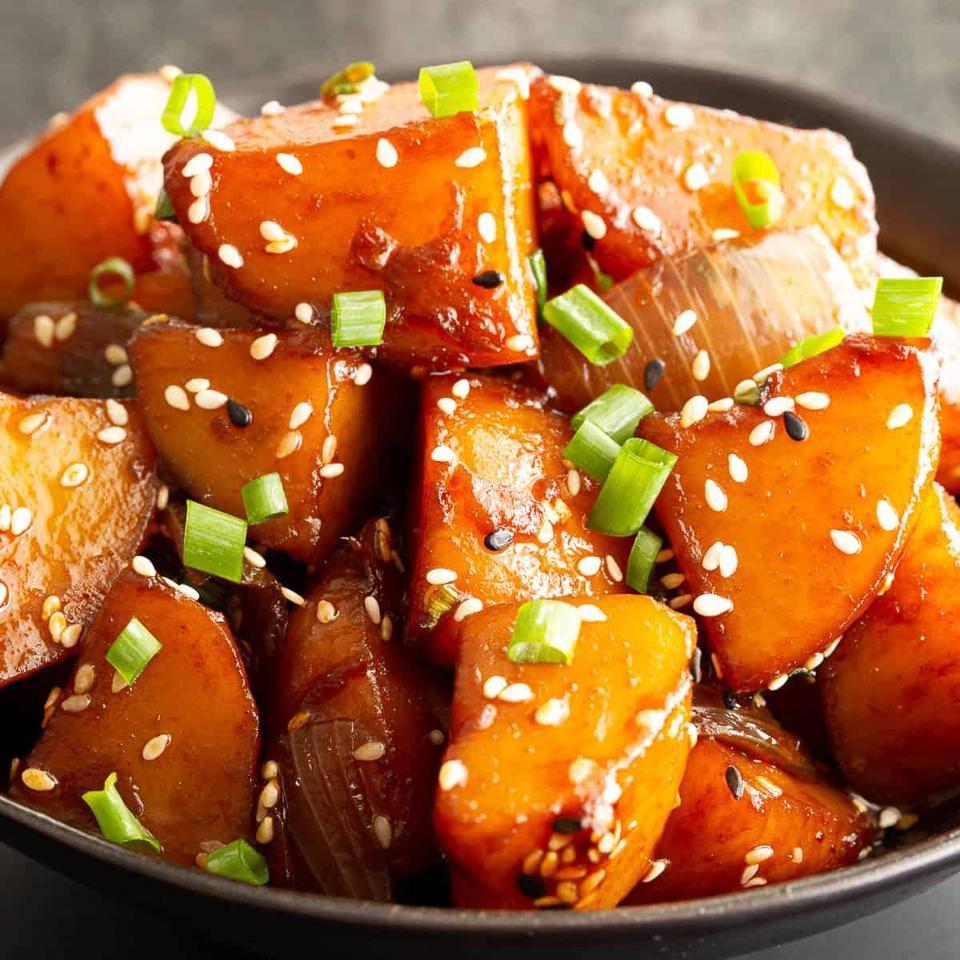
Fry the potatoes in a deep pan on medium heat with onions, garlic, and the white parts of the green onions until browned.
Add in the sauce and add water until the potatoes are barely covered. Mix until the potatoes are wellcoated with the sauce, then cover with a lid. Let braise until the sauce is reduced and you can easily pierce the potato with a fork (10-15 minutes).
Garnish with green onions and sesame seeds, and enjoy!
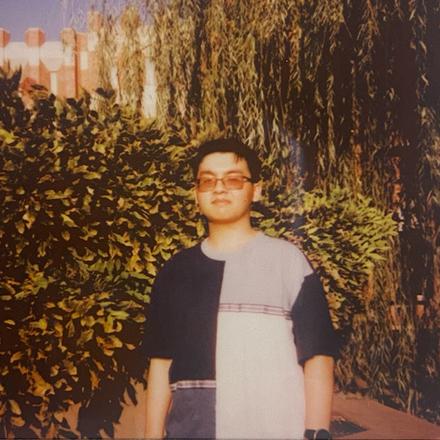

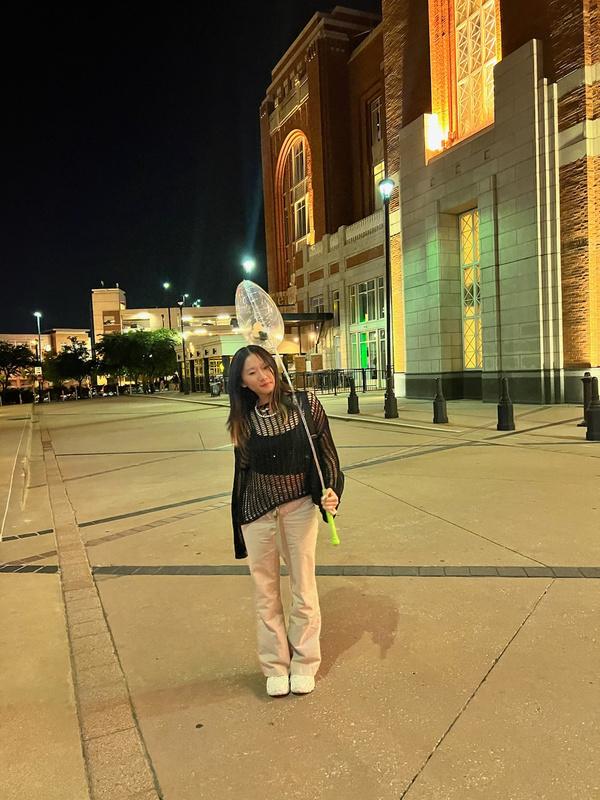

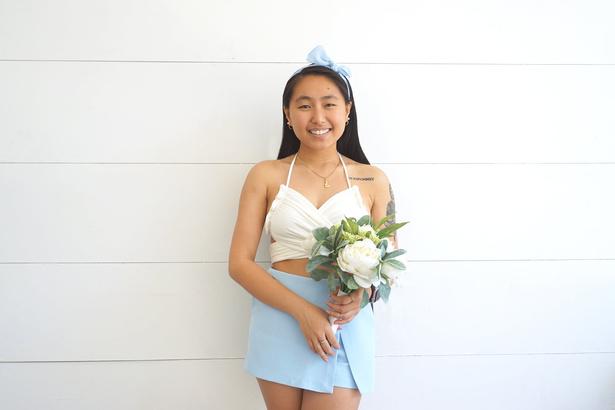

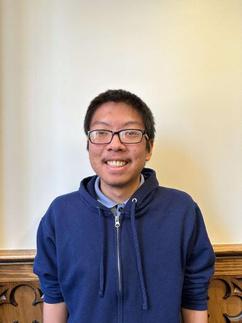

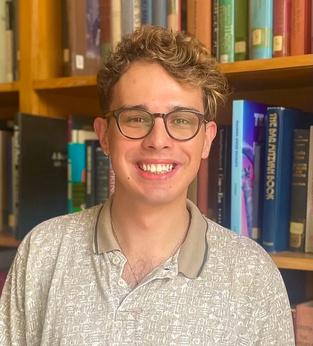

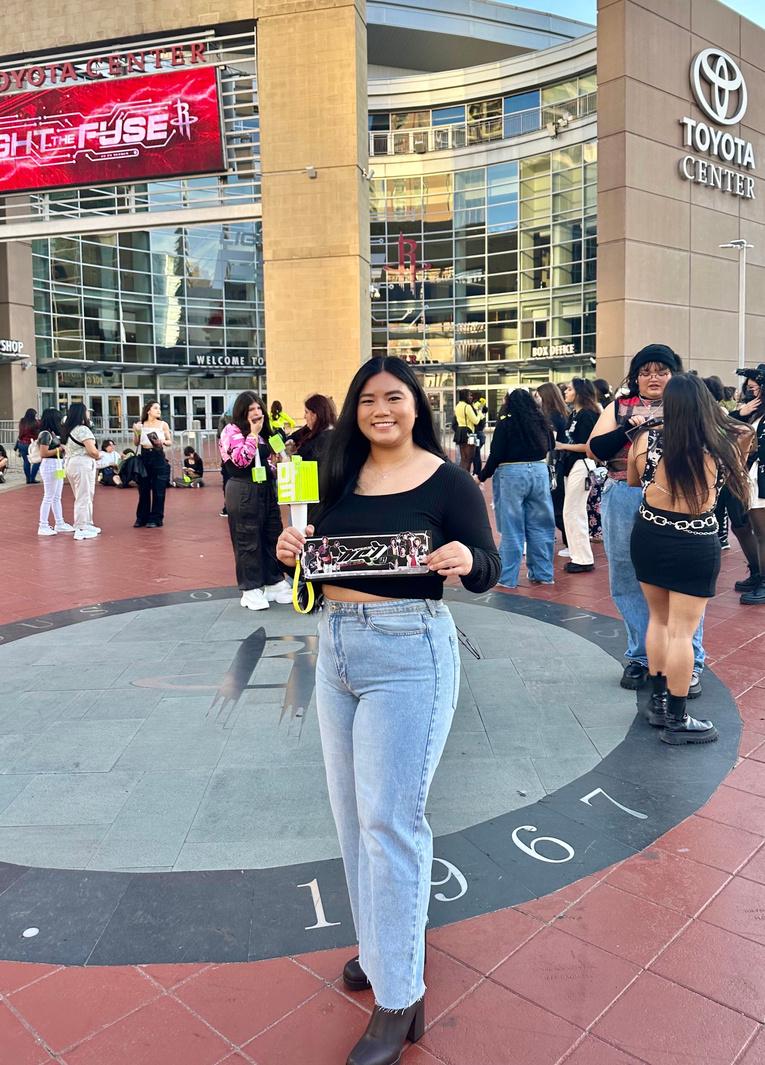

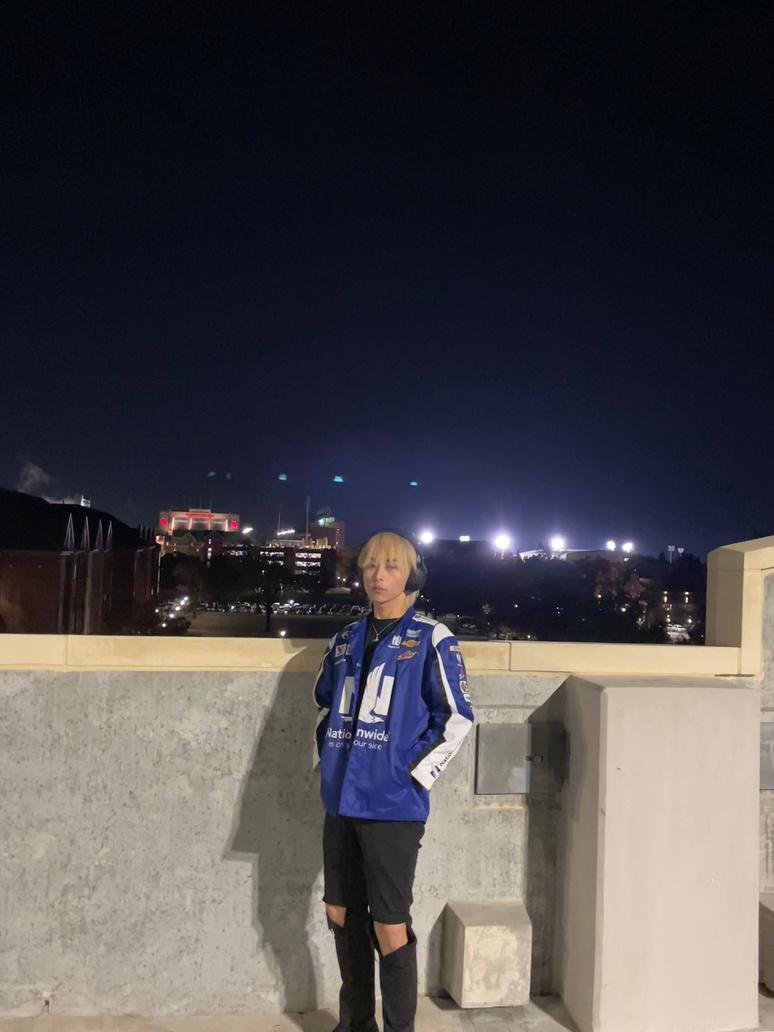

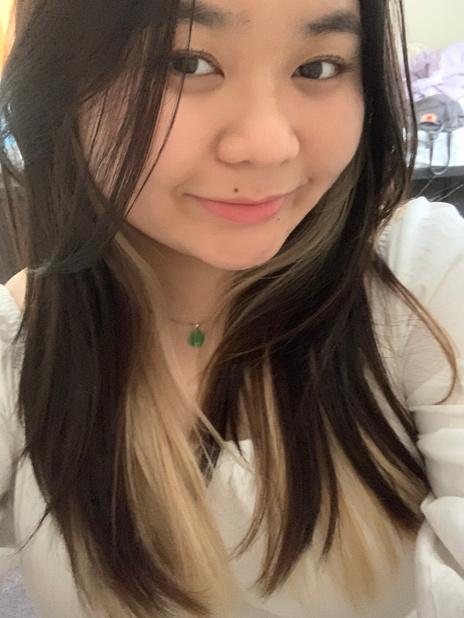

NE TEAM

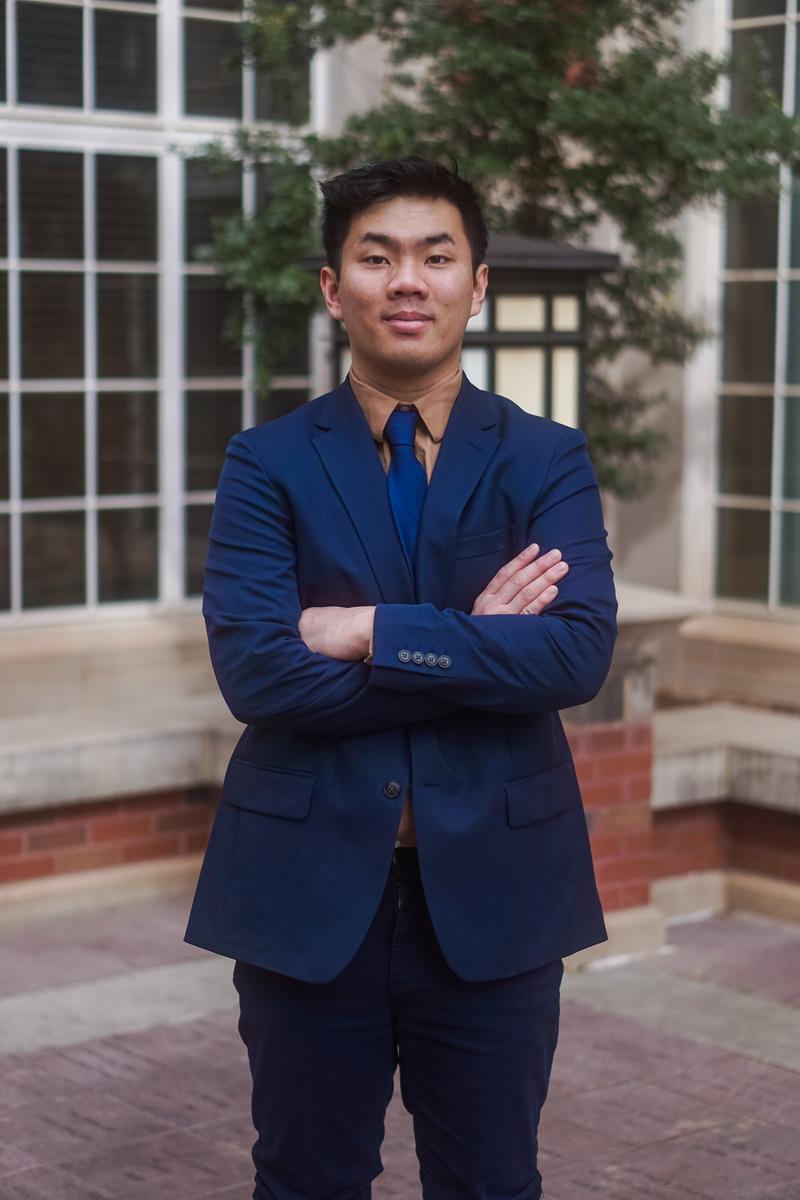


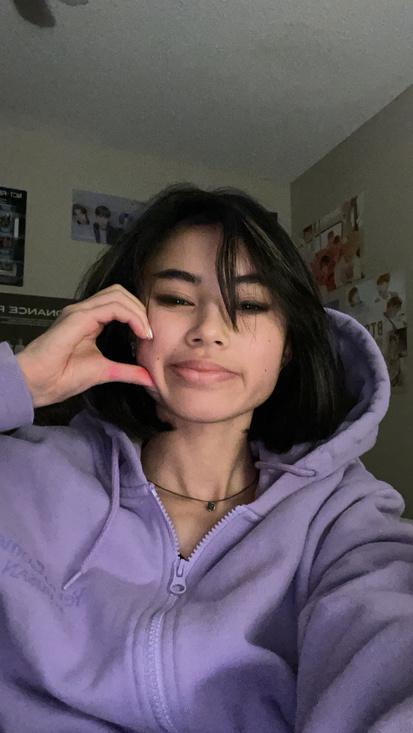



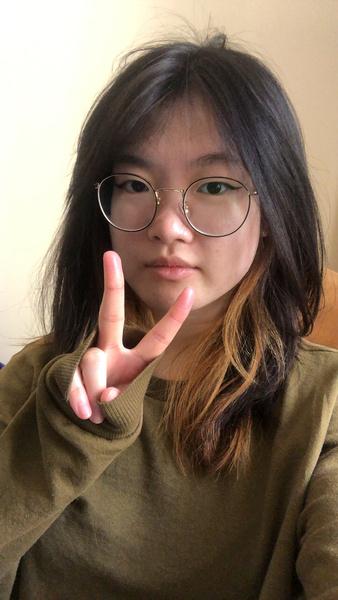

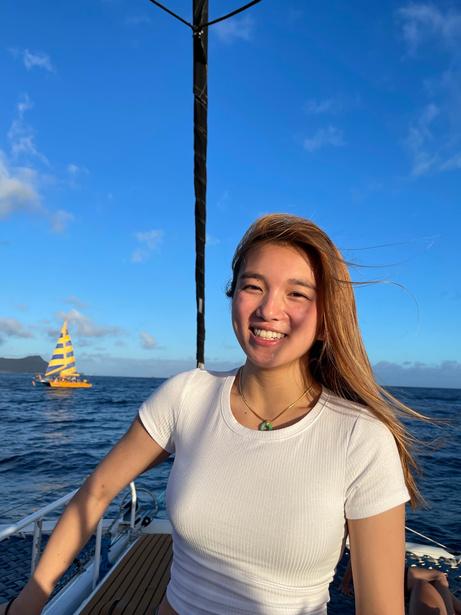






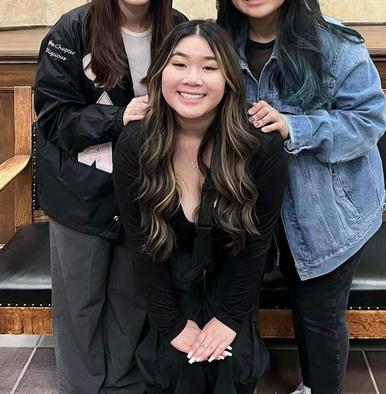 guyen
Yang
Amy Nguyen
Kaella Glenn
Kaly Phan
Susan Luc
Emma Nguyen
guyen
Yang
Amy Nguyen
Kaella Glenn
Kaly Phan
Susan Luc
Emma Nguyen
2 0 2 22 0 2 3 A A S A E X E C T E A M
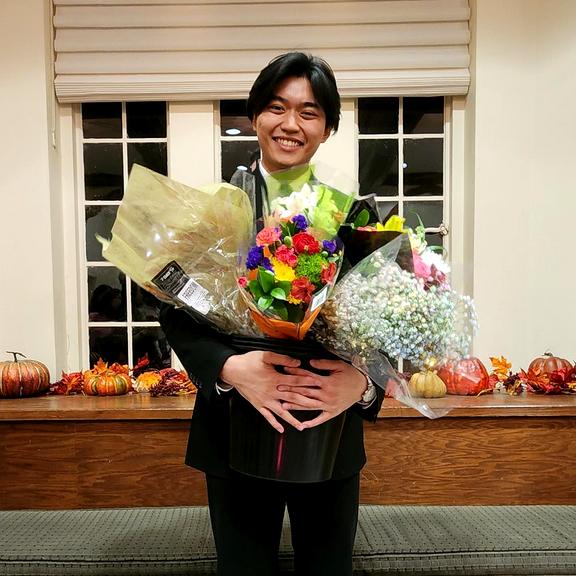
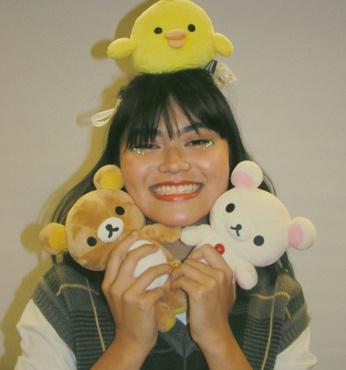
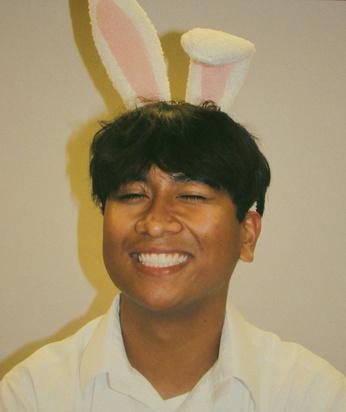
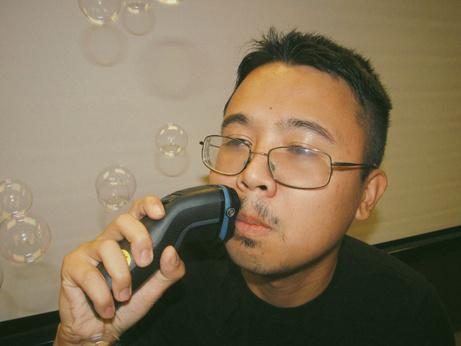
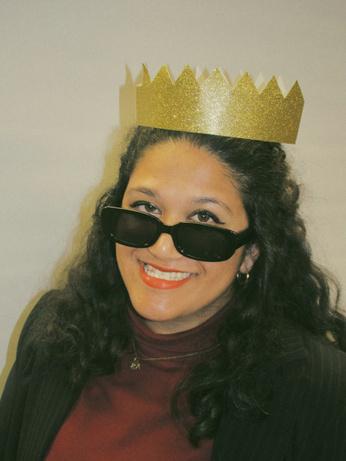
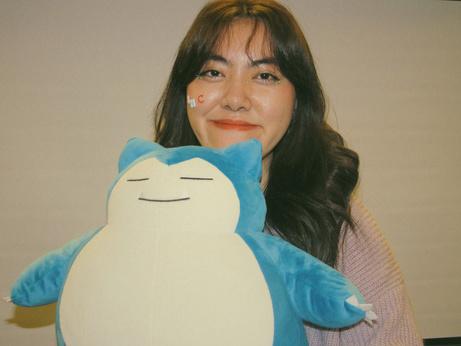
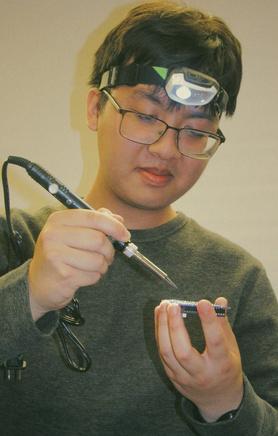
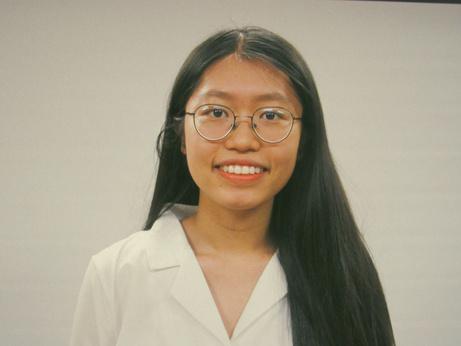
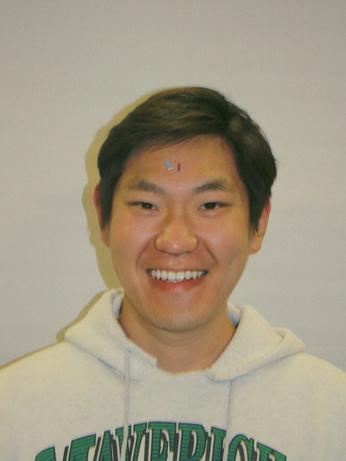
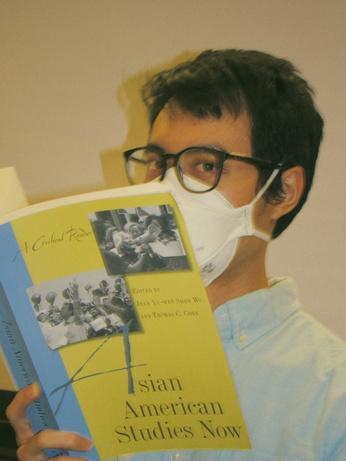
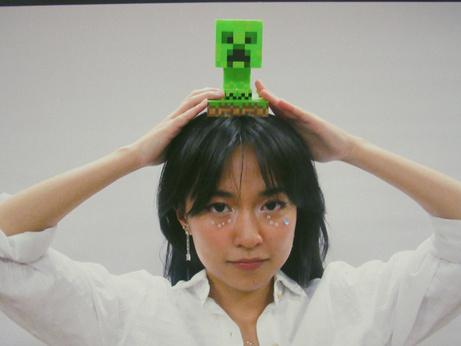
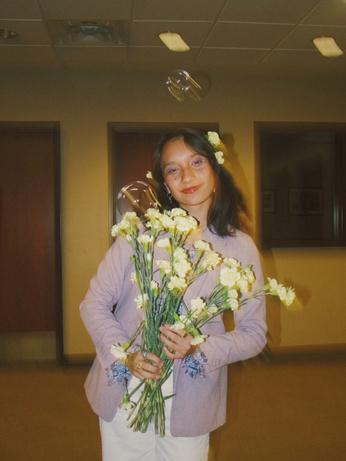
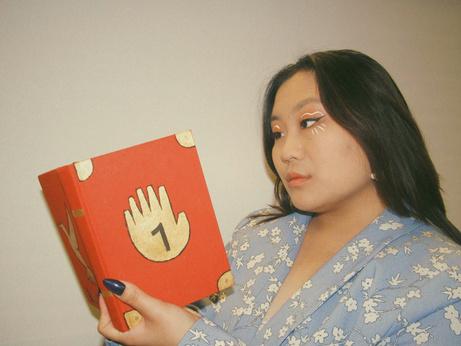
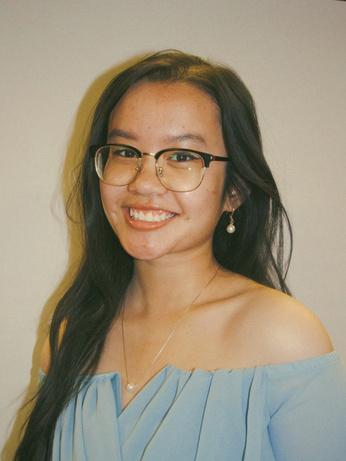
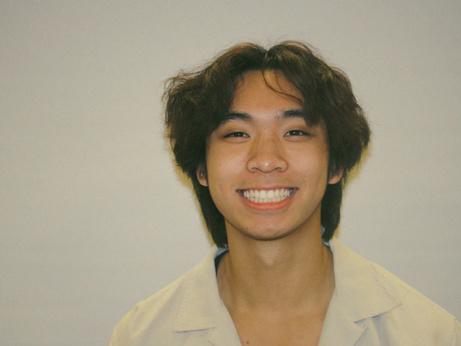
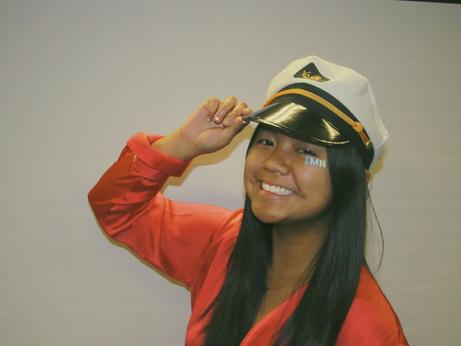
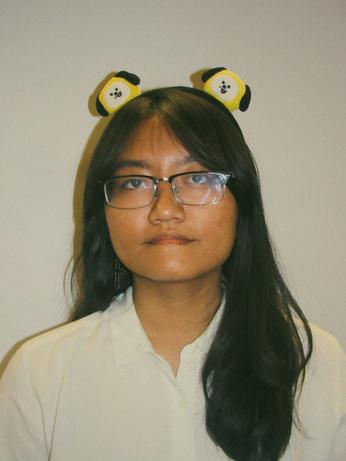
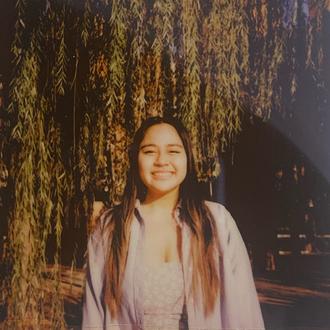
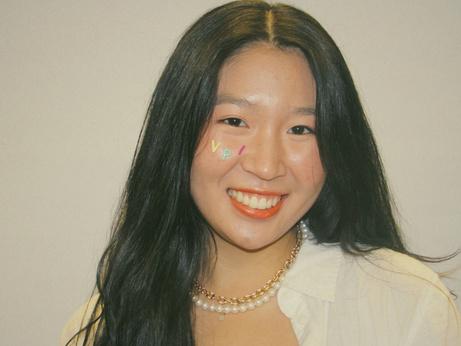
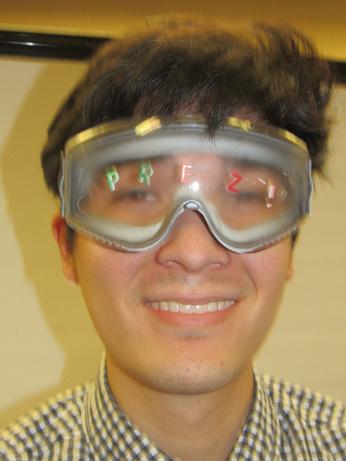
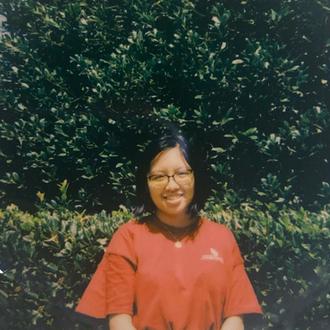
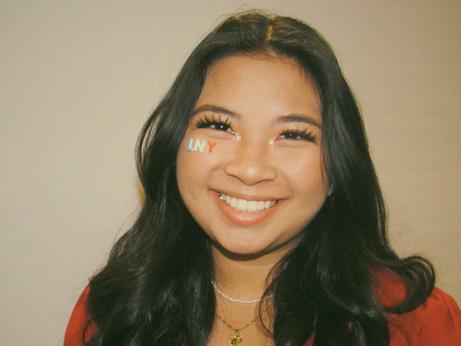


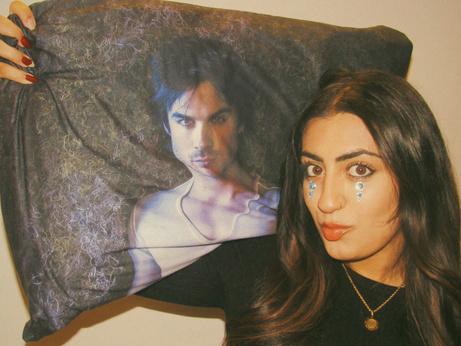
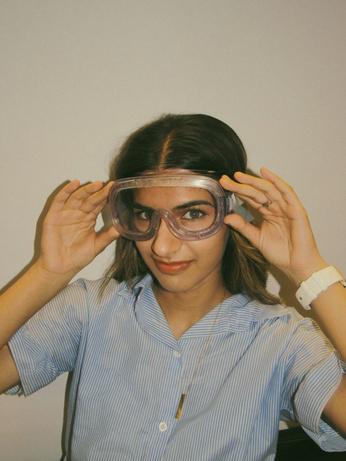 Lana Nguyen
GRAPHICDESIGNER Amelia Torrevillas-Brown
HISTORIAN Bella Pham
OUROYALTY
Lina Thai
FRESHMANREP
Paul Nguyen
FRESHMANREP
Maria de Asis
LIVEMUSICNIGHTCHAIR
Dim Zuun
FRESHMANREP
Annie Nguyen
VPEXTERNAL Sydney Wong
VPINTERNAL Oliver Wu
PRESIDENT
Margaret Le
DIRECTOROFPHILANTHROPY
Brittney Luong
LUNARNEARYEARCHAIR
Syeda Sayera
ASIANFOODFAIRCHAIR Sana Arshad
FRESHMANREP Ryna Zubair
Lana Nguyen
GRAPHICDESIGNER Amelia Torrevillas-Brown
HISTORIAN Bella Pham
OUROYALTY
Lina Thai
FRESHMANREP
Paul Nguyen
FRESHMANREP
Maria de Asis
LIVEMUSICNIGHTCHAIR
Dim Zuun
FRESHMANREP
Annie Nguyen
VPEXTERNAL Sydney Wong
VPINTERNAL Oliver Wu
PRESIDENT
Margaret Le
DIRECTOROFPHILANTHROPY
Brittney Luong
LUNARNEARYEARCHAIR
Syeda Sayera
ASIANFOODFAIRCHAIR Sana Arshad
FRESHMANREP Ryna Zubair
The Asian American Student Association of the University of Oklahoma provides a great opportunity to get involved with the campus community. Our purpose is to promote the cultural diversity of OU through activities that educate and celebrate the rich heritage and traditions of Asian Americans. In addition, the cultural heritage, language, and tradition of Asian Americans are emphasized.
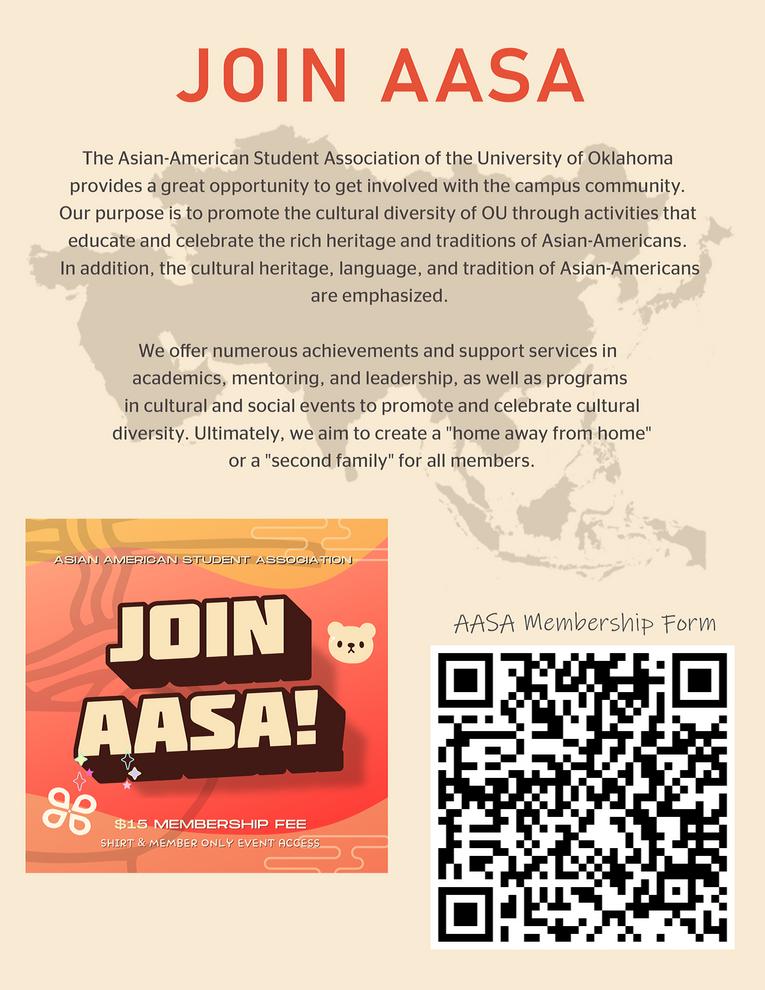

We offer numerous achievements and support services in academics, mentoring, and leadership, as well as programs in cultural and social events to promote and celebrate cultural diversity. Ultimately, we aim to create a "home away from home" or a "second family" for all members.
AASA'S MEMBERSHIP FORM
OU AASA'S MEMBERSHIP CAN BE PURCHASED FOR $15.00 VIA VENMO (@OUAASA) OR INPERSON!
BENEFITS OF AN OU AASA MEMBERSHIP:
- 2022 - 2023 OU AASA SHIRT
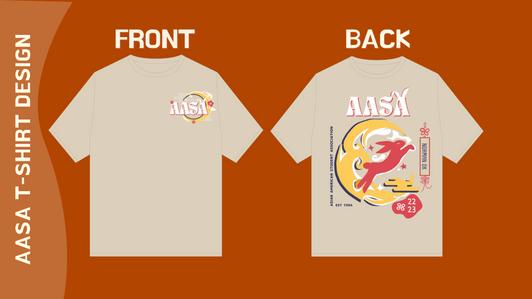
- DISCOUNTED RATES TO SELECT AASA EVENTS
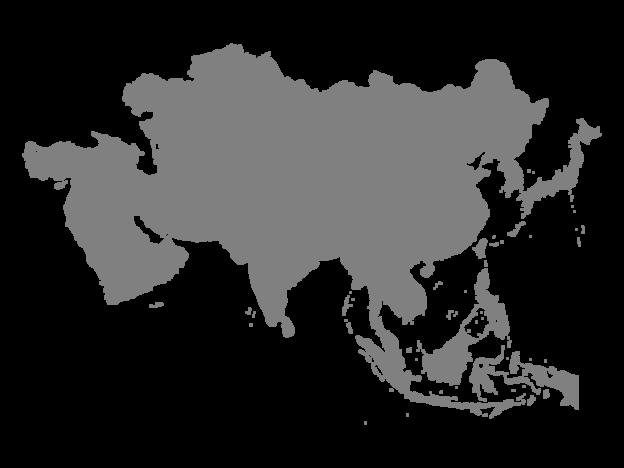
- MEMBERS-ONLY SOCIALS
- FREE FOOD, FRIENDS, AND FUN
